|
During the COVID-19 pandemic, workers’ rights have returned to popular discourse because of mass reliance on frontline workers. As millions of those workers have been scraping by and fearing for their futures, the wealth gap has widened, yet workers are largely expected to go on as normal—show up to work and continue to create a profit for someone at the top, often with no hazard pay. In Milwaukee, Wisconsin, which has been a COVID-19 hotspot, a union only several years old has taken bold action to unite people in their demands for better working standards and fair wages. Before the pandemic hit, the union won a major contract with the Bucks, which granted a $15 minimum wage by July. Now, Milwaukee Area Service and Hospitality Workers, better known as MASH, is bringing people together to vote. On the morning of Saturday, October 24th, MASH held an early voting rally at the Fiserv Forum (the new Bucks arena) for service and hospitality workers. Workers themselves gave impassioned speeches before going as a group to vote early at MATC. MASH president Peter Rickman started the rally with an announcement that one person who planned to make a speech was not able to make it because her car broke down on the way. Rickman cited the situation as an example of common obstacles the working class faces. “I’m holding Melinda Harmon’s remarks here because Melinda’s car broke down. Has anyone ever had their car break down on a day that’s important to them?... I think that story’s a little too common. People struggling in a tough moment, wondering ‘How am I going to get my car fixed? How am I going to pay the rent next month? How am I going to keep that We Energies call from coming in? How am I going to keep food on the table?’... The powerful thing about the story of people like Melinda is she just keeps on going,” Rickman said. “And Melinda got involved in fighting to win a union right here, along with 1,000 other people. The working class of the service industry has started to transform what’s going on in this city, because people like Melinda and other folks you’re gonna hear from got together and said, ‘We work together, so we’re gonna fight together’... Melinda helped create an industry-leading union contract at this place right here, to raise the wage not only to $15 immediately, but on a path to increase wages over two-thirds what they were before the union came in… right over there where the Bradley Center used to be.” (Rickman referred to what is now the Fiserv Forum.) Speakers echoed the sentiment of these remarks. Wanda Lavender, who is a mother of six children and has worked at Popeyes for four years, stated that even as a manager at Popeyes, she still only makes $12 an hour. “Like many Black workers who are stuck in low-paying jobs, I kept going to work through this pandemic. I can’t work my job from the safety of my home, and I can’t afford to take off,” she began. “People come in and don’t want to wear face masks so we risk getting exposed to a deadly virus... A few times, I’ve been scared that I have COVID-19. Even though I was feeling sick, coughing my lungs out, my job told me to come in. They said, ‘If you take off time because you are sick, you won’t have a job to come back to.’ No one should be forced to risk their health and safety for a paycheck you can hardly survive on.” Lavender credited “workers in the streets making demands and changing public opinion” for politicians supporting the $15 minimum wage, and referenced Joe Biden as one of them. Julia Derby, a recent graduate of UWM, was going to school full time and working two jobs when the pandemic hit. She graduated during the pandemic and noted that she has no plan for paying back her student loans. “I’m too preoccupied with how I’m going to pay the rent,” she said. Derby slammed President Trump for “granting tax breaks to corporations and billionaires while refusing to raise wages or guarantee income replacement when people can’t work.” She also criticized the GOP’s handling of the COVID-19 crisis, saying they have “massively mishandled and politicized COVID instead of prioritizing the health, safety and wellbeing of frontline and unemployed workers.” She continued, “We see their failures and we see a different future.” Anthony Steward, former cook at the Fiserv Forum, made remarks about the history of the struggle for labor rights in Milwaukee specifically, saying that it was “once known as the best place in America for Black folks to raise a family.” Steward said that was so because of workers uniting “in our workplaces, and at the ballot box to elect policy-makers who would help rewrite the rules and enable us to win unions that balanced the power between workers and bosses.” Bringing it back to the present, he said, “Political action also took it away. As soon as we won, the forces against us—billionaires and the boss class, Wall Street and the 1%—started trying to turn back our progress.” Our world now “looks a lot like the world before workers fought to change it,” he said, going on to emphasize the need for a renewed workers’ movement. Justin Otto, who worked at The Pabst Theatre until March when live music events were all cancelled, referenced his conversations with service workers in Milwaukee: “Every single person I’ve talked to who’s back at work has had to deal with extra concerns, extra precautions, and extra work on top of their normal job, but they’re not getting any extra pay.” He went on to say that hearing these things are “really upsetting… but it’s not surprising.” “It’s exactly what we can expect when decisions are made without us,” Otto said. “It’s exactly what we can expect when elected officials represent our bosses, corporations and themselves, instead of us. It’s exactly what we can expect until we elect different leaders and then demand that they listen to us.” The final speaker was Troy Brewer, a father of three and former employee of the Fiserv Forum, Miller Park, and Jose’s Blue Sombreros. “I worked three jobs, not by choice but out of necessity,” Brewer said. “What I have is hope and optimism that we, the people, meaning all the working people, can get through this thing together. As these jobs are coming back we know we can’t go back to the way things were. Normal doesn’t cut it for us. Normal was over 400 years of oppression and my people are still struggling. Normal was people having to work three jobs out of necessity. We can’t go back to normal. We have to build something new.” Brewer laid out his own vision for the future, where “Black lives matter… the educational system (is) revamped so that minorities in public schools get the same education and opportunities as private and suburban school children get” and “billionaire corporations pay their fair share.” “Now, let’s march over to the MATC and vote together for Biden/Harris, and vote for that brighter future,” Brewer said. Although speakers seldom referenced the Democratic Party as who would get their vote, MASH is openly supportive of the Biden/Harris ticket. Lindsay Adams, Lead Organizer at MASH, said that in terms of workers’ rights, another Trump administration will mean “reacting and protecting,” instead of moving forward. “One example might be the National Labor Relations Board, which is like the court system for unionization and union-related complaints and decisions. They oversee union elections, contract compliance, grievances, etc. Usually it’s a bipartisan body, where you would have republicans and democrats. And there are typically five people who serve on the National Labor Relations Board. Well since Trump has been in office, he’s only put three people in, not five, and all of them have been republican.” “In general, there’s this mismatch that you see as an extreme during the pandemic where on the one hand, we have all these people who are out of work and need work, and on the other hand we have all of these things that need doing, that are not being done. So something like the Green New Deal, where we have good union jobs with high wages and benefits and people trained to do the things like transition to a green economy. A Green New Deal is something that we would be pushing for and we would definitely not be seeing under Trump. There are plenty of Public Works projects that are needed and there are plenty of workers out there who need good quality, family supporting jobs. The thing is that we need a government that can match those two things together,” Adams said. When asked for an official stance from MASH on the election, Adams said, “People are suffering and so is the climate. And so we do have the opportunity with someone who has publicly supported a Green New Deal, a public option in health care, unionization protections for workers, and a $15 minimum wage. These are already public commitments that Joe Biden has made, and so it is our position that we are going to be able to work with administrations that publicly support the things we care about to move the working class agenda forward. Whereas we know already that will be an impossibility with Trump. It’s damage control with him.” MASH represents all of the workers at the Fiserv Forum. Adams said originally when they were going to build the arena, the owners wanted tax subsidies (public money) to do this, but several community groups asked for agreements on what these tax subsidies will generate for the city of Milwaukee, and particularly for working class people and people of color. “Out of that came a Community Benefits Agreement, where in exchange for these tax subsidies, the arena had to hire at least 50 percent of their work force from zip codes with the highest unemployment rates in Milwaukee, with MASH enforcing that requirement. They had to maintain neutrality if there was a union drive, so we had work site access on the ground every day to workers to begin discussions around unionizing and also a path beyond $15 an hour. These were parts of the Community Benefits Agreement. So workers opted to unionize, that’s over 1000 employees at the arena, and bargain their first contract which was finally ratified and set to go into place the week that COVID hit, when the NBA season was cancelled and the arena as well as others across the country were shut down. So our members are now temporarily but long-term unemployed, since March.” Having a union helped with their unemployment situation, according to Adams. “Everything from making sure that members had the appropriate unemployment information so that they could file very quickly, or if there were errors on the side of the employer, making sure that those were corrected so that people could get their unemployment benefits as soon as possible, to when they started having events without fans but still needed staff, making sure that those people who were hired were based on the agreements in the contract based on seniority and that they were paid under what should be their wages in the contract,” Adams said. MASH made a reservation for the group to vote together at MATC ahead of time. Photo Credits to MASH About the Author:
My name is Maddy. I am a journalist, writer, and thinker based in Colorado where I work as a stringer for a small-town newspaper and have some odd jobs on the side. I am a member of the Democratic Socialist of America and am interested in bringing a lens of intersectionality to journalism and "pushing the envelope" to make people think critically about social issues. I love animals, music, food, creative writing, and the outdoors. She/her.
1 Comment
10/28/2020 Venezuela’s Anti-Blockade Law - A Critique of Maduro and the Lies of Western Media: By. Edward Liger SmithRead NowNicolas Maduro and the Venezuelan Constituent Assembly have passed an anti-blockade law in an effort to circumvent crippling sanctions from the United States, and jump start the Venezuelan economy. The law will look to increase foreign trade in Venezuela, which many Venezuelan Socialists now fear will lead to an increase in privatizations, particularly in the oil industry, as well as an increase of foreign capital moving into Venezuela. Voices from the revolutionary left in Venezuela have also expressed concern that the law will lead to less government transparency in business dealings. Hashtag #NoApruebo (I don’t approve) was seen trending on Twitter in Venezuela at one point, as Venezuelans voiced their concerns that the law is a betrayal of Bolivarian Socialist values. President Maduro has argued that the law is necessary in the face of the US economic blockade. The past four years have seen the Trump Administration ramp up sanctions, which began in the 2000s with George Bush, and were escalated further under Obama. The Anti-Blockade law shows how many struggles in Venezuela stem from US sanctions. While the US media portrays Maduro as an evil dictator, destroying his own countries’ economy, and oppressing his own people. In reality, the primary critique of Maduro from the working masses of Venezuela themselves, is his inability to combat US sanctions with the same success as his predecessor Hugo Chavez. The anti-blockade law, and subsequent public response, can reveal much about the current situation in Venezuela. A situation which Western corporate media has consistently lied about, in an effort to manufacture public support for regime change in Venezuela. The public outcry against the anti-blockade law on Venezuelan Twitter reveals that many of the Western media narratives about Venezuela are inaccurate. The nonprofit outlet Human Rights Watch (HWR) claims Venezuela “imposes prison sentences of up to 20 years on those who publish messages of intolerance and hatred in media or social media.”[1] HRW says that the Government aggressively targets those who speak negatively about them. The public outcry against the Anti-Blockade law provides an example of how censorship in Venezuela is largely overblown by Western Media. Valid accusations of police brutality, and Government violence in Venezuela, are always met with loud public outcry from the masses in opposition. There are of course valid critiques of Maduro and the Venezuelan Government, however the reality in Venezuela is far from the totalitarian dictatorship it’s made out to be by outlets like HRW. Many Western Media outlets cite HRW as a source when discussing Venezuela, despite the fact that HRW has faced criticism for having former CIA members, and multinational business executives on their board of directors. Rather than sending journalists to investigate Venezuela, HRW publishes reports from members of the US backed Venezuelan Opposition, who are the minority party in terms of public support. This gives us a glimpse into how lies can be perpetrated on a mass scale in order to sway public opinion in favor of regime change. Even the name Human Rights Watch, gives readers the impression of a non-biased organization reporting on human rights abuses out of concern, when in reality the organization is controlled by corporate executives, and former CIA officials.[2] And most of the so called reporting, is from far right members of the US backed Venezuelan opposition. HRW is just one of many NGOs who feign concern for human rights, while spreading lies, or exaggerations to manufacture support for regime change. The work of HRW is frequently cited by Western media outlets when discussing Venezuela. A survey conducted by Fair.org found that “Zero Percent of Elite Commentators Oppose Regime Change in Venezuela.” [3] This is in the US, who claim the Venezuelan media is one sided and controlled by the Government. It is hard not to see the irony of a country whose media offers no scrutiny to the idea of overthrowing another countries’ leader in favor of a far right alternative, accusing another country of having a corrupt media apparatus. In reality Venezuela has a mixture of state and opposition media, with the privately owned Venivision dominating the Venezuelan TV and News Market.[4] A far cry from the hegemonic US media, who loudly beat the war drums for the US Empire at every turn. While the anti-blockade law provides an opportunity for us to critique Maduro and the PSUV Government, the critique stems from the President’s inability to combat US Imperialism. The people of Venezuela are not calling for their President to be ousted, but rather they are demanding he remain faithful to the ideals of the Bolivarian Revolution. A 2017 poll found that 75% of Venezuelan’s still support Socialism.[5] While Venezuelans have their critiques of Maduro, they ultimately recognize that their economic hardships are mostly being caused by the United States, and the economic blockade. The ultimate irony of the US Venezuela situation is the fact that Venezuela is used in the US as a talking point to argue that “socialism fails every time it’s tried.” Meanwhile, within Venezuela, the masses are critiquing Maduro for not being socialist enough. Arguing Maduro should nationalize more industry, and allow for less privatization of the economy. The economy needs to be diversified, and sectors outside of the oil industry need to be strengthened. Outside of those in the Venezuelan Opposition Party, the people of Venezuela largely want more Socialism, not less. In a recent interview concerning the anti-blockade law Venezuelan Chavista leader Telémaco Figueroa said “Socialism will not happen if we join hands with the bourgeoisie. It is we, the working people, who are called upon to carry out the task of saving humanity”[6] It is clear the working masses of Venezuela remain committed to building socialism, and recognize the enemy in their fight is the imperialist US blockade, and the bourgeois opportunists within their own country. It is vitally important for US leftists to understand the situation in Venezuela. Many who speak out against the blockade within the US are labeled as “dictator defenders,” even by those who see themselves as leftists. However, it is not Nicolas Maduro who those like me are defending. It is folks like Telémaco Figueroa, and the working masses of Venezuela who I choose to defend. Working masses who will loudly critique Maduro when necessary, but who also realize that their struggles originate from the US economic blockade, which is itself a product of capitalism and neoliberalism. I choose to stand with the working masses of Venezuela, and against the criminal economic blockade being imposed by my own country. Those Western leftists calling for regime change should reflect on what it truly means to be anti-imperialist. It is not Maduro who we must stand behind, but rather the working masses of Venezuela. A revolutionary people who remain committed to building socialism while facing pure economic warfare from the US. I stand with the people of Venezuela, and the Bolivarian Revolution as a whole. VIVA LA REVOLUCION!!! Citations. [1] “World Report 2019: Rights Trends in Venezuela.” Human Rights Watch, January 17, 2019. https://www.hrw.org/world-report/2019/country-chapters/venezuela. [2] Bhatt, Keane. “The Hypocrisy of Human Rights Watch.” NACLA, 2013. https://nacla.org/article/hypocrisy-human-rights-watch. [3] Teddy Ostrow, Helga I. Fellay, Ian, Gpcus, Doug Tarnopol, John Wheat Gibson, Wondering Woman, et al. “Zero Percent of Elite Commentators Oppose Regime Change in Venezuela.” FAIR, April 30, 2019. https://fair.org/home/zero-percent-of-elite-commentators-oppose-regime-change-in-venezuela/. [4] Lucas Koerner., Ricardo Vaz Ricardo Vaz is a political analyst and editor at Venezuelanalysis., Doug Latimer, Janice Olson, EL Comandante, Kc, Wondering Woman, , Arkan, and Michel St-Laurent. “There's Far More Diversity in Venezuela's 'Muzzled' Media Than in US Corporate Press.” FAIR, May 20, 2019. https://fair.org/home/theres-far-more-diversity-in-venezuelas-muzzled-media-than-in-us-corporate-press/. [5] Mallett-Outtrim, Ryan. “75% Of Venezuelans Support Socialism: Poll.” Venezuelanalysis.com, August 2, 2019. https://venezuelanalysis.com/news/13251. [6] Venezuelanalysis.com, Cira Pascual Marquina –. “The Controversial Anti-Blockade Law: A Conversation with Telémaco Figueroa.” Venezuelanalysis.com, October 27, 2020. https://venezuelanalysis.com/analysis/15029. About the Author:
My name is Edward and I am from Sauk City, Wisconsin. I received my B.A. in Political Science from Loras College, where I was a former NCAA wrestling All-American, and active wrestling coach. My main interest are in Geopolitics and the role of American imperialism with relation to socialist states, specifically China and Venezuela. I also worked for Bernie Sanders' campaign in 2020. 10/27/2020 Human Rights Defenders Fight to Protect Immigrants In Detention Amid Covid-19 Pandemic. By: Maddy HughesRead NowSince nearly the beginning of the Trump administration’s immigrant family separations in 2017, the ICE Detention Center in Aurora has been the subject of much speculation in the media. The facility, owned by private prison corporation GEO Group, is funded through a high sum in tax dollars and has been found to still overspend its budget. Despite the $7.5 billion that ICE spent in 2018 and $7.6 billion in 2019, there were a list of issues documented by the U.S. Inspector General in 2019 including incidents of mumps and chickenpox spread among inmates. Now, with the COVID-19 pandemic, there are worries that the detention center is a breeding ground for infection. In September of 2019 the ACLU of Colorado released a report citing human rights abuses and neglect at the facility that led to the deaths of two detainees. Kamyar Samimi, a 64-year-old man who was held in detention for 15 days before he passed, had been on methadone for 20 years and complained repeatedly of severe withdrawal symptoms to nurses. His complaints elicited almost no response. Had Samimi been given his medication, or never been taken off of it in the first place, he would have likely survived. Evalin-Ali Mandza, 46 years old, was in detention at the Aurora GEO Center in 2012 when he suffered a heart attack in the early morning. Because the ICE nurse on staff did not know how to use an electrocardiogram machine, nor how to read the test results, there was a delay in the decision to call for an ambulance. An investigation by the Department of Homeland Security found that staff also did not use proper Chest Pain Protocol, and Mandza wasn’t given cardiac medication. All these factors “may have been contributing factors to the death of the patient,” per the report. GEO Group CEO George Zoley seems to believe GEO’s operations are going well. The ACLU report notes that Zoley, who immigrated from Greece to the USA with his family when he was only three, announced in a February 2019 conference call with shareholders that he was “pleased with (GEO’S) overall operational and financial results during the very active fourth quarter of 2018.” During the call, he also proudly shared that the GEO Corrections and Detention unit served over 300,000 individuals in 2018. Net income for the fourth quarter of 2018 was $33.4 million. Local immigration rights activists disagree about what it means to “serve” inmates in ICE’s facilities. During the COVID-19 pandemic, activists have been concerned about spreading of the virus in detention centers. Ana Rodriguez, community organizer with Colorado People’s Alliance, talks regularly with people in the Aurora facility. At the beginning of the pandemic, inmates told her they weren’t even receiving clean towels. “They didn’t have anyone doing laundry service. This virus requires excellent personal hygiene. How are you supposed to stay clean and protected if you don’t even have a clean towel to use?” On March 27th, one of the detainees she talks to regularly told her that GEO guards gave the detainees written notices stating that they would be placed on 23 hour lockdowns in their cells and would be let out in groups so they could “adhere to Governor Jared Polis’” directive for detention centers. “For weeks, detainees were in their cells around 23 hours a day. The one hour they were allowed out was their only time to call family, attorneys, shower, etc. Some cells were even forgotten to be let out so they were stuck in their cells more than one day. Others were only allowed out 20 or 30 minutes instead of the full hour.” GEO claimed they were following social distancing guidelines, but at the time, they were keeping six to eight inmates in one cell. “That literally made it impossible for them to practice social distancing within their own cells for the 23 hours they were locked down per day. Even if they stood in different corners of the cell, they wouldn’t be able to be six feet away from each other,” Rodriguez says. In response to the news about inmates being grouped together in their cells, community organizations like COPA (Colorado People’s Alliance), AFSC (American Friends Service Committee), family members of detainees, and more allies made noise about the issue. They used social media, press releases, and contacted Congressional offices. After a few weeks, GEO started allowing detainees four hours out of their cells per day instead of just one. They were also spread out so cells had two to three people, but some cells still hold four to six people. COPA pressed Congressman Jason Crow’s office to ask why they couldn’t further spread detainees out and use every single cell. “They heard back from GEO that they couldn’t share that information because it was contractual with ICE. This made it seem as if they had no control over how spread out people were and it was ICE’s fault because that’s what the contract said.” And there was still a problem with the schedule inside the facility. “The problem was that GEO’s schedule was so poorly planned that for several weeks, at least once every few days some of the cells would not be released for 32 consecutive hours. The folks in these cells were released one day from 7:00 a.m. to 11:00 a.m., and would remain in their cells from 11 am until 7 pm the next day when they would be released from 7 pm to 11 pm.” This issue also required pressure from the outside to change. “Detainees created an alternative plan in a grievance that they submitted to the Major. They are supposed to hear back within five days. But they were getting radio silence.” Congressman Crow’s office stepped in at Rodriguez’s request, and asked GEO for information on their release schedules. “We also published this testimony on our social media and talked about it in our actions. Within a few days of the Congressman’s office asking for GEO’s cell release schedules, I got a message from my detained friend telling me that GEO had reorganized their schedules and they were now being released four hours in the morning and four hours in the evening.” Rodriguez has been organizing to increase transparency and accountability from ICE for two years now. She says her work, and community pressure, has gotten results. “The first year was about building relationships and hearing families’ stories, partly through canvassing outside the detention center. In October 2019 a local level ordinance was passed. In December 2019 the Pod Act was passed. And there’s been all of the work done with Jason Crow. Now community members in other places have precedent to use their Congress members to hold GEO accountable.” The local level ordinance mentioned requires ICE to report contagious disease outbreaks to the fire department. It is intended to protect first responders who may risk their health while visiting the facility on the job. The POD Act (Public Oversight of Detention Centers) allows members of Congress access to detention centers within 48 hours of their request. Congressman Jason Crow’s office does weekly visits to the Aurora ICE detention center to check on conditions in the facility. Rodriguez has heard from the fire chief that ICE has been reporting, per the ordinance, during the pandemic. However, she says, “Only two people have been tested. So the ordinance isn’t enough.” Rodriguez says that in the midst of the COVID-19 pandemic, she hears from people all over with loved ones who are detained. “Most recently I’ve been hearing from folks in California, Utah, Ohio. People are really panicked about what’s happening to their loved ones during the pandemic. In some cases they haven’t seen them in person since they were brought into the facility. They call me in desperation, saying, ‘I don’t know what’s happening,’ worried about their loved ones with asthma, saying people are getting sick and could die in there and the guards aren’t doing anything. They want me to check on (their loved ones).” Rodriguez would like to see a state policy to bring facilities under the responsibility of the state. “State facilities are important because GEO does not have official inspections. Reports on Congressman Jason Crow’s website are done by his staff, so they’re allowed to go through the kitchen for example and check for temperature of food. But imagine if you were hired onto Crow’s staff and on your first day, you had to go do an inspection of the Aurora ICE detention facility.” In other words, Crow’s staff is not trained for health inspections, especially during the time of a major health pandemic. “It would be much more thorough if a designated agency, like CDPHE, did it. They would have a laundry list of things they’re inspecting for.” Can ICE detention centers practice CDC safety guidelines well enough to contain the virus? From Rodriguez’ perspective, it’s not possible. “Having people in close quarters and in these for-profit detention centers will lead to inefficient care; they will always cut corners and choose the cheaper option versus the humane option. It’s inevitable that they will get sick in these facilities.” Medically vulnerable detainees are being released early due to a federal judge’s order, and as of Tuesday April 21st, ICE said they had already released 700 at-risk detainees. Rodriguez says this is not enough. “They have legal authority to use parole and let people go home to their families and continue ICE check-ins. It’s a preliminary injunction, and makes it clear that they’re not using basic tools at their disposal because people are not their priority.” She notes that there are many community organizations whose purpose is to provide direct service; help with placements, plane trips, and post them while this crisis is in place. “ICE should use every tool they have to get people out, to get them back to their families. That’s what our tax dollars should go to. Owners are making millions of dollars a year off our tax dollars to profit off these detention centers.” The order that ICE consider releasing medically vulnerable detainees early happened a week after RMIAN (Rocky Mountain Immigrant Advocacy Network), Arnold & Porter, and NIPNLG (National Immigration Project of the National Lawyers Guild) lawyers filed a federal lawsuit to release 14 detainees who were “at severe risk of serious health complications or death should they contract COVID-19.” Laura Lunn, an attorney at RMIAN, said that their lawsuit was similar to the case that caused a federal judge to order to release vulnerable detainees early. “That case provides a wonderful framework, this is the first time that something like that is happening,” she said. Eight of the 14 people in the lawsuit were released the day after the group filed suit. Six were denied release. “What’s striking about the group of people they released is they are all living with HIV, but they did not release another person living with HIV,” Lunn said. “It’s really hard to say what other factors they could be considering. Four of them have criminal history and two do not. Some of them have criminal history from over a decade ago, and this is civil detention, not criminal custody. None of them are serving a sentence, so there’s not a known end date to their confinement. They are being held before they go to immigration court. The government’s purpose that they go to court is not being met because they can’t go if they’re sick.” Lunn added that a July 2019 report by the Congressional Research Service titled “Immigration: Alternatives to Detention (ATD) Programs” notes that 99 percent of participants in Intensive Supervision Appearance Program III (ISAP III) showed up for their court hearings. And between the fiscal years of 2013 and 2017, 92 percent of asylum seekers showed up in court to hear the final decision on their claims. Lunn says that she doesn’t think the federal judge’s injunction is going to be effective. “Most of our clients have had their parole requests denied by ICE; we don’t believe that they’ll change their minds just because a judge says they need to re-review their cases. We want the district courts to make a ruling where a judge says, ‘Absolutely, you must release them.’ When you boil it down, they are the custodians and they have already decided to hold these people in their custody. The litigators will have to keep going back to court to make sure the judge is enforcing the order. ICE is going to have a conservative reading of that order. We don’t have time for the judge to create more clarity around his order when people’s lives are hanging in balance, we need a judge in Colorado to say their lives matter and they need to get out of ICE custody now. One of the plaintiffs in the case Lunn worked on, who wished to remain anonymous for the sake of her asylum case, is a transgender woman who came to the USA border on March 13th at the onset of the COVID-19 pandemic. She fled her country of origin “because of the transphobic violence that is criminal and threatened with death by gangs.” She crossed a bridge from El Paso and requested a number to enter COESPO. She was detained right away and transferred to Montana, then Arizona, finally ending up at the Aurora detention facility. She said that detention had a significant effect on her health. “For me, it was very traumatizing. I have HIV and I started sinking into a depression and a lot of fear. I felt how my immune system started getting weaker, people with HIV can really feel that. I was very fearful of getting sick. The norms were not good, it wasn’t clean, and too many people were placed together.” She was lucky to have pro bono attorneys working her case. “We had to file a lot of grievances against GEO, especially during the pandemic. We had to make a lot of denunciations (against ICE) with attorneys because many of our group of women are HIV positive, so any infection can really harm us in the detention center. There was no cleaning, no detergent. Our immune system was already down from the stress of being detained, so the risk (of contracting) coronavirus was even higher.” “Seven trans women are still there, two of them have been for over a year. One of them has diabetes. I ask that ICE be more flexible with trans women. All of us carry a lot of hardship and have problems from our home countries. Sharing our stories over and over with officers, I always started crying because every time I have to repeat it, it’s like I have to live it again. They ask us again and again to see if we’re trying to lie. I wish they were more sensitive.” When she entered the country, she thought she was doing the right thing. “We voluntarily gave ourselves over to immigration, we’re trying to follow the process, we should be treated more sensibly.” She explained that she doesn’t think detention centers should be the solution for all immigrants. “There should be a different type of detention center. We are all mixed together; people in red jumpers have committed crimes, and (people in) orange jumpers have broken some law, but we’re all in there together. When they arrested me, they treated me like a criminal. I had never been arrested in my life. We were handcuffed in the airplane, like we would try to escape.” “Everything I experienced with ICE has been traumatizing. I didn’t think it would be that way. For example, another trans woman and myself were singled out by officers and told we needed to go wash our faces. We just didn’t think us having makeup had anything to do with this process. Some guards kept saying you are men, you aren’t women. They would make us take off our bras because we don’t have breasts.” As an immigrant rights attorney, Lunn’s main concern is the health and safety of detainees. She doesn’t know why more people haven’t been tested for the virus. “That’s something you should ask ICE. I don’t know why they haven’t tested more people. Anecdotally our clients have noted that many people are coughing, sneezing, have fevers, have difficulty breathing. That’s what’s fueling the fear they experience each day because they see so many sick people around them. One of our clients has said that there has been intermingling between dorms in the facility. All of the dorms are understaffed because a lot of staff members are not coming to work. One of our clients has one lung as well as asthma, so she could easily die from the virus but she cannot easily control who she’s exposed to on a daily basis.” She says oversight of the facilities is a band-aid. “As of April 17th a GEO employee tested positive so that same day they started practicing quarantine inside that pod. But no detained setting is appropriate during a pandemic because it’s impossible to practice social distancing. Even if you make sure no one else is going in and out, staff is coming in and out every day and not wearing PPE. There are still people being detained and brought into the facility by ICE. 20 percent of people infected show no symptoms but still can transmit it. Even if they’re doing temperature checks and telling staff to stay home, it’s not preventing the spread. Vulnerable people will suffer health complications for the rest of their lives. TIME looked at the whole prison system in Ohio and 78 percent of inmates had it. When you boil it down the government has argued that our clients are not better outside detention than in it.” “Medicine doesn’t support the claims the government is making. Our clients are saying the people bringing them food are not wearing face masks and their food is uncovered. So they say, ‘What risks am I facing just by nourishing my body?’ All the comforts we have through this pandemic are stripped from our clients so emotionally they are better off not in detention.” During the time of COVID-19, only detainees with added health issues are being considered for early release. But all detainees are reliant on staff to follow CDC guidance, especially because they don’t receive updates on best safety practices themselves, according to Lunn. “The main outlet people have to understand any of this is through the news and our clients don’t have control over the flow of information that they’re receiving,” Lunn said. Some detainees still do not have legal representation for their cases in this time of elevated health risk. Claudia Robles, a USA -born citizen, says she has spent $15,000 on legal help for her husband who was detained in November of last year. When his case was denied, she took matters into her own hands. “On March 17th, Luis was denied his cancellation of removal by a GEO ICE judge. I could not afford a lawyer anymore so I had to help my husband file his own appeal to see if somebody else can take a look at the case and see that the judge made a bad call that my husband should have to leave the country just because she thinks that he’s a bad husband, which he is not. That was her reasoning for denying his cancellation of removal. I disagree, my husband is the rock of our family. He completes us and we feel empty without him with us.” Claudia and Luis have a four year-old daughter together, and with schools closed until next year due to the pandemic, and her husband detained, Claudia will have to pay for private day care until schools open. Claudia calls herself the “bread-winner” of the family: “I work as a medical assistant in my local urgent care (clinic). I am an essential worker in this pandemic,” she said. Claudia has no idea when her husband will be released, though she is worried for his health, as he suffers from asthma. “It’s been super hard to have Luis in GEO knowing he gets spoiled food and not enough food. I barely sleep just worrying about his health and well being, especially now that in this pandemic my husband has to share his cell with five other people. If he gets COVID-19, that could be deadly, since it’s a virus that affects his lungs which are already compromised due to his asthma.” Claudia and her daughter have not been able to see her husband since the pandemic began. “We have no information of when he will be released because he was denied bond twice by the same judge that denied his cancellation of removal. Before the pandemic his visiting days were Tuesdays, Fridays, and Saturdays. My daughter and I went every Saturday to go see my husband since he has been there. The last time we were able to see him, behind glass of course, was on March 8th. My daughter is very sad and tells her dad every day how much she misses him and misses seeing him even though it was behind glass. She never understood why she wasn’t able to hug and touch her father, why she had to talk to him through glass and hear his voice through a phone.” Claudia may have to wait through the whole pandemic for Luis to be released. “We’re waiting to hear if his case is going to be able to be appealed. They told us that it could take six months to a year for a response, which means my husband would have to be in detention that whole time until we heard back to see if his case would be able to be appealed. We are trying to do a humanitarian parole right now for him but it seems that GEO has been returning all the legal documents that I’m trying to send my husband so that he can apply for humanitarian release due to having asthma. Hopefully soon this information will finally get to him and he will be able to file for humanitarian parole and be able to come home until we can hear from the appeal.” For the foreseeable future, detainees, their families, and immigrant advocates will be counting on the mercy of ICE to release those on the inside with added health risks. When asked for comment, Pablo E. Paez, Executive Vice President of Corporate Relations, replied, “As a service provider to the federal government, we would refer you to U.S. Immigration and Customs Enforcement for specific answers to your questions, as well as the agency’s latest guidance on COVID-19. Our company has taken comprehensive steps to address and mitigate the risks of COVID-19 to all those in our care and our employees as detailed in our public statement at geogroup.com/COVID19.” About the Author:
My name is Maddy. I am a journalist, writer, and thinker based in Colorado where I work as a stringer for a small-town newspaper and have some odd jobs on the side. I am a member of the Democratic Socialist of America and am interested in bringing a lens of intersectionality to journalism and "pushing the envelope" to make people think critically about social issues. I love animals, music, food, creative writing, and the outdoors. She/her. In late August of 1921, a militia made up of unionized West-Virginia coalminers began armed conflict with a private police force paid for by the wealthy mine owners who controlled the region’s politics. It ultimately became the largest labor uprising in United States history and the largest armed insurrection other than the Civil War. This was the Battle of Blair Mountain and it was the culmination of decades of labor struggles in Appalachia which boiled over into armed conflict on many occasions. Here I will provide a short history of the battle as well as the historical context that led to it. Like much of the rest of the U.S., Wester Virginia was largely composed of small, self-sufficient farms. Unfortunately for these farmers, they chose land on top of valuable coal deposits, and as American industrialization took off in the mid-19th century, so did its demand for natural resources to fuel it, making coal a valuable commodity. Thus, industrialists swarmed the hills of Appalachia gobbling up land by contesting deeds and using various other underhanded tactics to push poor families off their land. These newly landless masses would form the industrial proletariat which provided the labor power for the rapidly growing coal operators.[1] As the coal mines popped up so did the “Company Towns”. Ostensibly meant to provide services for the workers of these remote mines, company towns were actually the private fiefdoms of coal operators.[2] The entirety of the town, from the homes to the schools, were owned by the company, with workers being paid in “company scrip”- pieces of paper only redeemable at the “company store”. These were stores owned by the company where low-quality products were sold at inflated prices. Of course, this was not the only way the miners were fleeced. Coal operators utilized rigged scales, oversized containers, and various other methods to ensure miners did not receive the full wages they were owed for the coal they harvested. And, since housing was owned by the company, evictions happened on the whim of the owner. This hellscape was completed with private police to enforce these rules and discourage even the whisper of a union.[3] These conditions engendered plenty of resistance. Strikes occurred frequently in this period with many of them breaking out into violence. This is exactly what happened when the Paint Creek-Cabin Creek strike turned into open armed conflict. In 1912 miners associated with the United Mine Workers of America, District 17, went on strike demanding higher wages and recognition of their union, along with an end to mine guards, blacklisting, and restrictions on freedom of speech and assembly. Coal operators responded quickly, calling in hundreds of detectives from the private agency, Baldwin-Felts, to evict and intimidate workers. Additionally, coal operators imported “scabs” to replace the striking workers.[4] When miners were evicted, they set up tent colonies throughout the area. On February 7, 1913, the mine owners used an armored train outfitted with machine guns to open fire on one of these tent colonies in Holly Grove, fortunately only killing one miner. In response, the miners swiftly armed themselves and began engaging in guerilla warfare, ambushing mine guards near Holly Grove killing at least 12. When the violence failed to subside, West Virginia’s Governor, William Glasscock, declared martial law in the district three separate times, arresting over 200 miners and their allies including an 86-year-old Mother Jones, who had helped organize the strike. Over 100 of these people were court-martialed and sentenced to prison terms, but most of them were released by West Virginia’s next governor Henry D. Hatfield, although he kept the most radical strikers imprisoned. Hatfield followed this by imposing a settlement on the strike and closing socialist newspapers. While the settlement did not solve the underlying issues in the area, the conflict would have to be put on hold with the outbreak of World War I when many of the miners were drafted and new war-time restrictions were placed on unions.[5] After fighting in the most brutal war in history up to that point, the miners returned to a post-war slump, meaning lower wages and inconsistent work- not to mention the fact that war-time restrictions on union activity remained in effect. In 1920 the UMWA began an organizing drive in the southwestern part of the state that would last 28 months and include the Battle of the Blair Mountain. The drive began, and was relatively successful, in Mingo County where many towns, such as the small town of Matewan, had managed to remain free from company domination. Coal operators responded by locking miners out of the mines and beginning eviction proceedings. On May 19, 1920, Baldwin-Felts agents hired by coal operators began evicting families in Matewan. This was brought to a halt by the pro-union sheriff of Matewan, Sid Hatfield, who questioned the legality of the evictions and ordered the agents to leave town. However, before the agents could leave, Matewan mayor, Cabell Cornelius Testerman, issued an arrest warrant for the Baldwin-Felts agents for violating a city ordinance for carrying weapons. When Sheriff Hatfield confronted the agents with the warrant, they claimed they also had a warrant for Hatfield’s arrest, although they refused to produce it. Once Mayor Testerman was notified, he sent word that he would pay bond for Hatfield, but the agents claimed no bond would be accepted. Testerman then arrived on the scene, demanding to see the agents’ warrant which they produced. Testerman immediately declared the warrant to be a fake, leading to a shootout in between the agents and townspeople killing 7 Baldwin-Felts agents and 3 townspeople, including Mayor Testerman.[6] In the following months, clashes between the miners and police forces were frequent with miners engaging in acts of sabotage and ambushes of police agents. The police forces responded by attacking miners and shooting up tent villages. Martial law was declared three separate times with violence erupting again immediately after troops left. Finally, in the Spring of 1921, the governor instituted a draconian martial law heavily biased against the miners. In August of 1921, Sid Hatfield was summoned to McDowell county to answer charges for blowing up a coal tipple in the Spring. As Sid and his friend, Ed Chambers, walked up the courthouse steps, they were gunned down be Baldwin-Felts agents. Both men were unarmed. 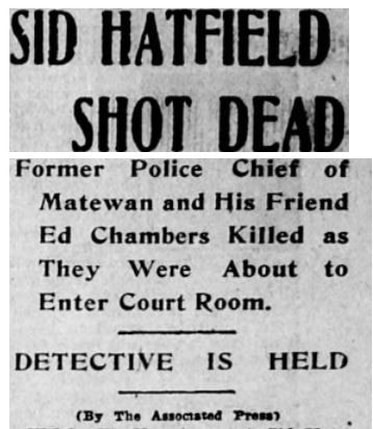 This was the final straw for many mining communities in neighboring Logan County, who began agitating and organizing into armed patrols. Logan County was a coal operator stronghold, under the dominion of notorious anti-union sheriff, Don Chafin. In fact, upon his election, Chafin was given stock in coal companies amounting to between $700,000 to $840,000 in today’s money.[8] Logan county is split in two from north to south by the barrier of the Spruce Fork Ridge, which includes Blair Mountain. At the time, the western portion of the county was controlled by Don Chafin, while the eastern portion was a union stronghold. As miners began mobilizing, Chafin sent police to the town of Clothier where they arrested and assaulted a minor. The miners responded by ambushing and harassing several troopers before allowing them to leave. Miners began gathering at the state capitol of Charleston where they determined to go to Mingo to break the harsh martial law. Before miners could begin their march, U.S. President Harding sent Brigadier General Harry Bandholtz who negotiated a peace with representatives from the UMWA. Miners in Charleston decided to call of the march and return home. However, in miners in the Spruce River Valley shut down mines and fortified their locations, while miners in Clothier commandeered a train and began shuttling miners to Blair. Things remained peaceful until August 27, when Sheriff Chafin dispatched a force of over 300 police and detectives to Clothier to arrest the miners who had previously harassed his troopers. When they arrived in Clothier, they were confronted by a group of miners leading to a shootout where three miners were killed and three were arrested. This enraged miners who had begun returning home, leading them to regather and continue the march to Mingo.[9] Full open conflict began on August 31, with an estimated 10,000 miners attempting to march to Mingo and 3,000 police agents- mostly from Baldwin-Felts- seeking to stop the march from defensive positions fortified with machine guns. Being veterans of the First World War, the miners were a formidable force waging a highly coordinated and disciplined campaign. On September 1, Chafin even resorted to contracting private planes to drop bombs on the miners, although these bombings were largely ineffective. This open conflict and the possibility that miners might break through Chafin’s defensive positions instigated federal intervention. 2,100 federal troops were dispatched to the area and by September 4th fighting had ended, with an estimated death toll of 100 people. Miners had initially hoped the government would side with them but that was not to be. After the battle, 980 miners were arrested mainly for charges of treason and/or murder. While most of the farmers were acquitted, the legal fees incurred devastated the union, leaving it financially destitute for years to come.[10] 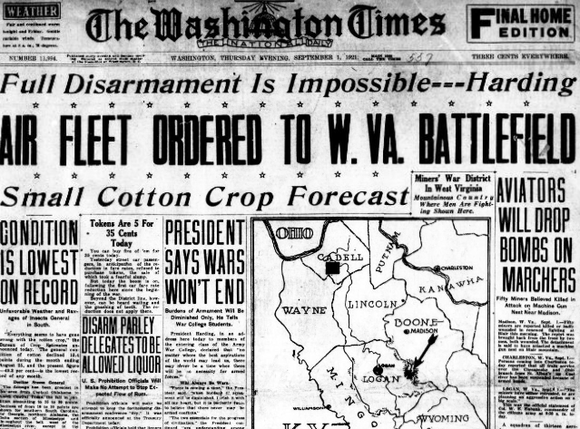 With this, the saga of Blair Mountain came to a close, with the UMWA decimated and the cola operators victorious. Despite their hopes that the Federal government would side with them, - especially given the veteran status of many of the miners- the government came down firmly on the side of the coal operators. This episode is just another instance revealing the role of the Bourgeois state: to protect capital from the demands of labor. The rights the miners were demanding would not be granted for another decade when the Roosevelt Administration adopted them as part of New Deal legislation. Although the miners failed in their immediate aims, they did manage to strike fear in the hearts of capitalists and gained national attention, setting a precedent for the limits to which workers can be pushed before they strike back. Citations. [1] Nida, B. Demystifying the Hidden Hand: Capital and the State at Blair Mountain. Hist Arch 47, 53–54 (2013). https://doi.org/10.1007/BF03376908 [2] Richman, S. (2018, March 21). Company Towns Are Still with Us. Retrieved October 22, 2020, from https://prospect.org/economy/company-towns-still-us/ [3] Paul J. Nyden (Mar 01, 2007) Topics: Movements. “Rank-and-File Rebellions in the Coalfields, 1964-80.” Monthly Review, June 30, 2014. https://monthlyreview.org/2007/03/01/rank-and-file-rebellions-in-the-coalfields-1964-80/. [4] Nida, B. Demystifying the Hidden Hand: Capital and the State at Blair Mountain. Hist Arch 47, 55–56 (2013). https://doi.org/10.1007/BF03376908 [5] “Share Paint Creek-Cabin Creek Strike.” encyclopedia. Accessed October 22, 2020. https://www.wvencyclopedia.org/articles/1798. [6] Jansen-Montoya, Isaac. "The Battle of Blair Mountain." [7] “Sid Hatfield Shot Dead.” Colorado Historic Newspapers Collection. Accessed October 22, 2020. https://www.coloradohistoricnewspapers.org/?a=d. [8] Jansen-Montoya, Isaac. "The Battle of Blair Mountain." [9] Nida, B., and Adkins, M. J. (2011). The social and environmental upheaval of Blair Mountain: A working class struggle for unionization and historic preservation. In Smith, L., and Shackel, P. (eds.), Heritage, Labour, and the Working Classes, Routledge, London, pp. 52–68. [10] Jansen-Montoya, Isaac. "The Battle of Blair Mountain." [11] "AIR FLEET ORDERED TO W. VA. BATTLEFIELD." Washington Times [Washington D.C]. Library of Congress, chroniclingamerica.loc.gov/lccn/sn84026749/1921-09-01/ed-1/seq-1/. About the Author:
I'm Alex Zambito. I'm born and raised in Savannah, GA. I graduated from the Georgia Institute of Technology in 2017 with a degree in History and Sociology. I am currently seeking a Masters in History at Brooklyn College. My Interest include the history of Socialist experiments and proletarian struggles across the world. After a year or so since the CIA backed coup that ousted Morales, today we rejoice with the news that Movimiento al Socialismo is back in power in Bolivia. This event represents the first appearance of hope in a year plagued by a deadly virus and an even deadlier dealing of the virus by capitalist countries like the US, where more than 200,000 people have died. Some in the American left have used this victory in Bolivia as an inspiration towards organizing against Trump, stating that like Bolivia, we can vote fascism out of power. Communist Party USA (CPUSA) is pushing a campaign called Vote Against Fascism, which tries to inspire its members to vote for the lesser of two evils. With the victory of Arce, the message has been “Bolivia did it so can we”. In this way, they partially equate a vote for Biden in the US with a vote for Arce in Bolivia. In both cases we have the removal of a proto fascist government; this can be stated as “in both cases we have the electoral negation of fascism.” Although the American left agrees that in the affirmative end, Biden and Arce are nothing alike, their similitude comes from their position as a negation to fascism. The thing about negation, is that it is always the mere initial face of affirmation. A similitude in negation, cannot itself meaningfully exist without a similitude in the affirmation upon which the negation opens the door for. Similarity in the space of removing fascism can only really stand as similarity if in the affirmative afterward of the fascist negation it stands as a similitude as well. If two rock climbers are slipping into an abyss and one jumps and catches on to a sturdy rock, while the other jumps and catches on to a fragile stick, both equally jump, yet we must be delusional to talk about such a minute similarity when the results in each case are so gradually different. The jumping in this case is the negation of the fall, and the grabbing is the affirmation of a possible climb. As in the electoral struggle against fascism, in the rock example, we have a life or death situation. In both cases jumping is the only thing that will bring the possibility of life. Bolivia is the jumper that landed on the rock. It is, at least for now, safe to keep climbing. The US is the climber that is about to jump to the stick. Since it has not jumped yet, I wish to present a couple points about possibly jumping for the farther rock, given that if we miss the far rock or grab on to the close fragile stick, in both cases we will still fall. The stick, as in the case of Biden, is the most reachable out of the alternatives. The problem is that, as in the case of a vote for Biden, the stick is not going to prevent the eventual fall. This is clear, especially as one sees that the reason the rock climber is falling in the first place is because of his continual attempt to merely climb through sticks. Thus, the similitude a Biden win would have with the win in Bolivia is as minute as the example of the rock climbers. Arce and MAS combine their negation of fascism with a socialist affirmation. They negate fascism with the hope of the continual progress socialism has brought in Bolivia. Along with this, in the last year the major unionized industries in Bolivia have been tremendously active in fighting against the fascist coup; uniting worker and indigenous groups in striking and calling for the resignation of Áñez.[1] With Biden this is not the case. A Biden negation has no truly hopeful affirmation behind it. It is obvious to anyone who is halfway conscious about the class struggle in the US, that Trump is not some anomaly. The rise of fascism did not appear from a supernatural void that opened in 2016. This rise has its roots in the natural decay of a capitalism where a socialist revolutionary movement is absent. When socialist do not work on the subjective conditions of the working class when their objective conditions are revolutionary, it is bound that they will fall into reactionary circles. Concretely, Trump is a result of 8 years of an Obama administration that accelerated a neoliberal agenda even quicker than Bush had before him. On this, most communist agree, Trump is not an anomaly, but a symptom of the system and the last 4 decades of neoliberal governments. From this perspective, we can see that a Biden administration is a return to the conditions that gave us Trump in the first place. I do not think there is much disagreement here. CPUSA and the American left do not conceive of Biden as potentially any better than Obama. The question they are asking is the following. “We accept Biden is not a panacea of the ills of our society. We accept that Biden is a return to the condition which gave us Trump in the first place. But is government that can potentially lead to fascism again better than a fascist government?” Their answer is a big YES. The American communist who disagrees with CPUSA’s informal agitation for Biden gets told that “a candidate who maintains the capitalist status quo and imperialism is better than a candidate who maintains the status quo and imperialism but who also agitates his militarized white nationalist base to kill communist and people of color”. When posed like this, it is quite obvious that the answer is correct. Anyone would prefer this lesser of two evils approach, given that the lesser is obvious in this case. What we have here in their reasonings is a central assumption which I hope to pick out, in order to then more objectively analyze the scenario. The central assumption can be presented in both its philosophical and material formulations. Philosophically it is a question of potentiality and actuality. Do you want potential fascism or actual fascism? When proposed like this, potential fascism is the better route, given that it buys us time to potentially depotentialize that potential. The assumption here is that one can revert to repotentializing something which is already actual. The assumption is that a Biden win does not just negate a Trump presidency but negates the historical effects of that Trump presidency. The problem is that, once the oak tree is there, there is no reverting it to an acorn. All one can do, besides radically tearing the tree apart, is replant the new acorn the oak tree gives. That oak tree itself will never be an acorn, it will only give you new acorns, but even then a replanting of a new acorn does not remove the existence of the oak tree, but expands the possibility of that oak tree making a new oak tree friend. Their assumption is that this potential negates the actual. Where in reality, this potential will do no more than re-establish itself as the bearer of the potential to duplicate the actuality. In its material formulation, their assumption centers around the conception that with Trump out of office, and with Biden in, the fascist militancy of the Trump fanatics somehow disappears, or at least begins to dissipate. But how much more guarantee do we have that Trump’s militant base will be less potent with a Biden presidency? Is the man who says that police should shoot black folks in the leg instead of killing them really going to take the steps necessary to face the militancy of white nationalism? Especially considering his involvement in the crime bill, his continual denial to decriminalize marijuana, and his old segregationist stances, all which are lethal for black communities. This is the guy you think will help lower the threat of the militant white supremacists Trump empowered? They might respond that since Biden does not provide the legitimation for these groups that Trump does, that this will be the source of the disempowerment of those groups Trump gave a voice to. But this assumes to easily that those shouting the loudest will be quite just because they were removed of their official microphone. Not only does it assume this, but it ignores the plethora of Trump supporters claiming outright civil war if Trump loses. In any case, I do not think that communist or people of color are much safer from the militancy of white supremacy just because Trump is out of office. On the contrary, if the current status of things tells us anything is that replanting that acorn will quickly result in a new oak tree. By this I mean a Biden win, from what we can infer, can only but exacerbate the militancy of white supremist. So, what then? Do we not vote? Do we just allow Trump to win because we are scared of the civil war threats from his militant white supremacist circles? No, this is of course not the correct answer. We must vote. But as all communist should be aware, voting is perhaps the smallest and last part of a revolutionary struggle. Before any true victory can come from the electoral arena, we must have already had a strong level of economic organization. As Haywood states in Industrial Socialism “Our fight is, first of all a shop fight. It takes place at the point of production where the workers are at present enslaved. Until this is understood there can be no real understanding of Socialism.”[2] The American left focuses the majority of its efforts in pursuit of electoral victories without the prior existence of organization among class lines. Until the irrational divisions of socialist parties and organizations in the US unite and focus their energies on workplace organization as the necessary predecessor to the electoral struggle, we will continue to face futility in the political sphere. Although I have argued here that Biden is not the knight that will smash the rise of fascism Trump allowed, that does not mean in other social and welfare positions a Biden presidency will seem to make it easier for us to organize our revolutionary struggle. Regardless of how we decide to vote this election, the result will likely be very similar; American will continue to face the brutalities of a capitalism in decay. A day like today 94 years ago the most popular American socialist of the 20th century, Eugene V. Debs, died. Whether we step into the ballot box with his famous dictum “I rather vote for something I want and not get it, then vote for something I don’t want and get it” in mind and vote for a La Riva or Hawkins ticket, or whether we take the more pragmatic approach of voting for Biden; the reality of the revolutionary futility of this election is present. The only way to eliminate this endless condition of revolutionary futility the American socialists have had for a century is to dedicate the next four years to combining all of our forces together and begin, under one umbrella, a process of economic organizing. Only if we are able to do this will a serious revolutionary party impact in the political sphere be possible. The inspiration of the victory of socialism in Bolivia should not be spent on motivation for a futile election, but on organization to make the presently impossible possible. We are facing a capitalism challenged by its natural cycles of crisis and by the surplus crisis brought about by a pandemic. As millions of American lose their jobs and their employer-tied healthcare plans in the middle of a pandemic, the wealth of the 643 billionaires in the US grew by $845 billion.[3] The time is now for communist and socialist to take advantage of these objectively revolutionary conditions and add the subjective element necessary to blow this whole thing open. “[We] may be dreamers, but dreamers are necessary to make facts!”[4] Citations. [1] Peoples Dispatch, “National Strike Continues Across Bolivia, Demands Grow For Áñez To Step Down,” last modified August 7, 2020, https://peoplesdispatch.org/2020/08/07/national-strike-continues-across-bolivia-demands-grow-for-anez-to-step-down/. [2] Haywood, William, and Frank Bohn. Industrial Socialism (Charles H. Kerr & Company Cooperative, 1911), p. 45. [3] Saloni Sardana, “US Billionaires’ Wealth Grew By $845 Billion During the First Six Months of the Pandemic,” Markets Insider, last modified September 17, 2020, https://markets.businessinsider.com/news/stocks/us-billionaires-wealth-net-worth-pandemic-covid-billion-2020-9-1029599756 [4] Hellen Keller, “Why I Became an IWW,” New York Tribune, January 1916. https://www.marxists.org/reference/archive/keller-helen/works/1910s/16_01_16.htm About the Author:
My name is Carlos and I am a Cuban-American Marxist. I graduated with a B.A. in Philosophy from Loras College and am currently a graduate student and Teachers Assistant in Philosophy at Southern Illinois University, Carbondale. My area of specialization is Marxist Philosophy. My current research interest is in the history of American radical thought, and examining how philosophy can play a revolutionary role . I also run the philosophy YouTube channel Tu Esquina Filosofica and organized for Bernie Sanders in 2016 and 2020. Going into the 2020 election, the Covid-19 pandemic and Government response, will be an important issue for most American workers. The working masses of America continue to feel negative effects from the pandemic, as Republicans and Democrats in Congress squabble over the details of a second stimulus check for workers. Many jobs have been labeled “essential,” meaning they must be continually done in order for society to function. Those who work as grocery store cashiers, bus drivers, child care providers, and meat packers, are putting themselves at risk daily just by going in to work. At a time like this the Federal Agency OSHA is essential for protecting the safety of American Workers. OSHA’s stated purpose is to ensure safe working conditions by enforcing safety standards. While OSHA is always important for the health and safety of working Americans, during a pandemic proper enforcement of safety standards can become a matter of life and death. During the Pandemic 10,000 complaints have been filed to OSHA by workers. The response of OSHA has been to issue only 2 citations to businesses for failure to follow safety standards. [1] Reports from various workplaces have begun to appear, accusing OSHA of failing to properly inspect those workplaces being accused of violations. The Trump administration has repeatedly downsized the agency, and pushed them to be increasingly pro-business. The failure of OSHA during the pandemic shows just how vulnerable American workers are, and how the ruling class attempts to dismantle any institutions workers create to protect themselves. While companies continue to pump out advertisements praising the bravery of their so called “essential workers,” those same companies seem to have little care for the health of those same essential workers. In Franklin Wisconsin much of the meat goes through Strauss Brands meatpacking plant. Christopher Cook of The Progressive wrote an incredible piece titled Killing Workers Safety. Cook interviewed Maria Ramirez who contracted Covid-19 while working at Strauss meatpacking plant. Ramirez said that her workplace took almost no precautions to prevent the spread of Covid. She talks about the constant fear she and her coworkers lived in, worrying that they would catch the virus at work, and bring it home to their families. The employees made multiple complaints to the company, all of which were ignored. After Ramirez’s worst fears came true, contracting the virus at work, she found herself coughing up blood, and without the ability to see a doctor. She complained to the company, and was subsequently fired for speaking out. After being fired, Ramirez and 27 of her coworkers, worked together with the nonprofit group Voces de la Frontera to put constant pressure on OSHA into providing some compensation. OSHA finally agreed to provide minor compensation to the angered workers. [2] OSHA’s choice to provide compensation in the situation of the Strauss meatpacking workers was rare, and took a concerted effort from workers in order to force the agency into action. At other times, they have reportedly done nothing at all in response to worker complaints. Employees at the Maid-rite meat packing plant in Pennsylvania told Bryce Covert of The American Prospect that OSHA had been consistently ignoring their many complaints. After a concerted effort from concerned employees to convince OSHA to perform an inspection, the agency finally agreed. However, OSHA did not follow standard protocol, which says they’re supposed to show up for the inspection unannounced. Instead, they called the Maid-rite 24 hours in advance, to warn them when the inspection would be happening. In response, the company told workers to wear face shields, and stand six feet apart as the inspection was happening, then continued with business as usual when the inspectors left. [3] This blatant failure to protect workers during a deadly pandemic shows how truly disrespected and devalued the working class has become in America. Although society recognizes that the labour of these workers is essential, we don’t feel the need to protect those doing the essential work. The capitalists, who can’t help themselves but to squeeze every last penny they can from the working class, won’t even allow the existence of an agency which ensures workers not be put in life threatening situations at the work place. Capital seeks to destroy even the most minor existing protections which labour has fought for. The most powerful man in the country, President Donald Trump, currently sits ahead an administration filled with wealthy businessmen and banking executives. The powers of the government/state rest in the hands of the capitalists, and they are doing everything in their power to destroy any worker protections which may halt the flow of their capital. Only through the solidarity and organization of workers, like that of the Strauss meatpacking employees, can the working class strengthen protections for ourselves. While the 2020 election offers no candidates who will truly fight for workers in Washington, issues such as this, the deregulation of OSHA, are why I am making the reluctant decision to vote for Joe Biden this year. While many conspiracy minded American’s think the pandemic will disappear November 3rd at the conclusion of the election, in truth we will likely be battling this virus for a good while longer. While Biden’s donors won’t be enthusiastic about his administration strengthening OSHA, I believe with enough public demand, we can force Biden to appoint more pro labour administrators to OSHA. And the more pro labour people there are in any section of the government, the better. While these stories of workers who are alive to tell their stories may outrage us, we aren’t even mentioning here the many who have died. There is no doubt that many of the 215,000 people who have died from Covid-19 contracted the virus while at work. The death toll continues to rise as many American’s continue to demand the economy be reopened. Demands being made both by wealthy businessmen, and American workers who desperately need to work in order to get their next paycheck. While the media is often hyper critical of Trump, the administration’s response to the Pandemic has truly been a failure, and as a result people have lost their lives. Decisions to deregulate Wall Street, and downsize workers safety agencies despite a deadly pandemic, truly highlights how organized capital seeks to roll back any advances made by organized labour, despite the human costs it may have on the working class. If workers are to have any kind of future we must realize the necessity of organizing, and fighting. Understand that those who hold power in the country will take even your most basic protections from you if it means protecting their wealth. Let’s organize, let’s fight, and let us demand that whoever ends up as President this November strengthen OSHA, and stand with workers. Or else expect mass resistance. Citations [1] Covert, Bryce. “How OSHA Went AWOL During the Pandemic.” The American Prospect, October 6, 2020. https://prospect.org/labor/how-osha-went-awol-during-the-pandemic/. [2]Cook, Christopher D. “Killing Worker Safety.” Progressive.org, October 12, 2020. https://progressive.org/magazine/killing-worker-safety-cook/. [3] Covert, Bryce. “How OSHA Went AWOL During the Pandemic.” The American Prospect, October 6, 2020. https://prospect.org/labor/how-osha-went-awol-during-the-pandemic/. About the Author:
My name is Edward and I am from Sauk City, Wisconsin. I received my B.A. in Political Science from Loras College, where I was a former NCAA wrestling All-American, and active wrestling coach. My main interest are in Geopolitics and the role of American imperialism with relation to socialist states, specifically China and Venezuela. I also worked for Bernie Sanders' campaign in 2020. This weekend I competed at the 2020 Senior National Tournament in Greco Roman Wrestling. At a few points throughout the day, I stopped to wonder if I was the only Marxist competing in this tournament. I noticed one athlete from Arizona State who warmed up in a “Black Lives Matter” T-shirt. It was nice to know I’m not the only athlete in this sport who feels compelled to take a stand on societal issues. Although I enjoyed seeing a fellow athlete making a statement with a politically charged T-shirt, I realized that I was likely the only athlete who had made it their life goal to create political change, and likely the only athlete in favor of radically changing the current economic system. I was the only Marxist. Next, I began to ponder some questions which I find myself asking constantly. What do most American people think Marxism is, and how much do they know about what I actually believe? Quite a few close friends of mine with no understanding of Marxism have asked me to explain to them why I call myself a Marxist in the year 2020, in the middle of a country which has demonized the ideology for more than 80 years. Every one of these conversations has ended with mutual understanding, with some friends asking for books to learn more, and even leading some to become Marxist themselves. These conversations have compelled me to write this article. I’m simply going to tell you why I call myself a Marxist, and why I believe Marxism is the most valuable intellectual tradition in the 21st century. One of the most important things to understand about Marx, is that while he was a philosopher, he was also an economist. After years of studying philosophy, and digesting the works of Hegel, Kant, and Feuerbach, Marx realized that in order to truly understand the world around him, he would need to study economics. Starting in 1843, Marx began reading the works of Adam Smith, David Ricardo, and James Mill, who had all written theories of Political Economy. Marx learned much from the work that these men had done, but he knew his work needed to go further than the Political Economists of the past. Marx began to combine what he had learned from studying philosophy, with the information he was now learning from the Political Economists. This led him to produce the theory of Dialectical Materialism. Entire libraries of books have been written about the idea of Dialectical Materialism, but I will give you the most simplified explanation that I can. Dialectical Materialism is the idea that everything on earth is constantly in motion, and through struggle between contradictory opposing forces, new phenomena and systems are birthed from the systems of the past. While thinkers like Hegel believed the constantly changing material world was a reflection of human ideas, Marx inverted this, and said that everything stems from concrete and observable forces existing in the material world. While Marx believed ideas to be important, he said that ideas are formed from the concrete material realities of life. Marx saw that this idea of materialist dialectics, which says the world is constantly moving and changing based on contradictions, could be applied to economics, observing that economic systems have been changing since the beginning of time. The system prior to capitalism was feudalism, where peasants both lived and worked the lands of powerful lords. Over time struggles and revolutions transformed the feudalist mode of production, into the capitalist mode of production we have today. A system where capitalists own the land, while workers sell their labour to those capitalists in exchange for the necessities of life. Marx saw that like Feudalism, over time capitalism too would change, and eventually be replaced by an entirely new system. If you didn’t understand any of that, don’t worry. For the rest of this article I will refrain from using philosophical jargon. If you still have no idea what I mean by Dialectical Materialism, just think of what American’s call Progressives. Folks who think that rather than remaining the same, society should look to constantly change and improve to something better. This is not to say that all progressives are Marxists, but progressivism clearly finds its intellectual roots in dialectical philosophy. So how are the economic observations of a man living in the 1800s still relevant today? It is because Marx used the scientific method to study capitalism. He conducted a systematic analysis of capitalism in order to draw conclusions about how the system works, and the effects it has on those who live in it. The book Capital, which consists of three volumes around 800 pages each, observes all the different pieces which make up the capitalist system, as well as their relations to each other. Marx visited factories, and cited pages upon pages of accounting books in order to conceptualize, and study the flow of capital. He found that a number of capitalists have ownership of private property, which he called the means of production. This means all the material things necessary for the production of goods, including factories, tools, and raw materials. The class of people who own the means of production, are who Marx labeled as the bourgeoisie. Marx also observed another class within capitalist society, which he called the proletariat. The Proletarians do not own private property, but instead possess only their own human labour, which can be sold to a capitalist in exchange for money. Marx called this Human Labour Power, which is unique when compared to all other commodities which are bought and sold in capitalism. Labour is a special commodity, because it has the ability to add value to a product. To conceptualize this, imagine a capitalist who owns a chair company. The capitalist can own an entire forest of trees, but if he wants to make money from those trees, he must pay workers to cut them down, take them to a factory, and carve them into chairs, which can then be sold at a profit. When the capitalist then sells his chair on the market, he assigns it a price which will be enough to pay for the production of the chair, plus a surplus for himself. He must pay for the replacement of raw materials used to make the chair, the deterioration of tools used in the production process, the wages of the workers, and finally a surplus value for the capitalist himself. This surplus value is used either to expand the companies’ operations, or it is taken by the capitalist himself as profit. Surplus value then, is a value which is created by the labour of workers, but is pocketed by the capitalist, who has added no actual value himself. These relations between workers and owners within capitalism creates a situation in which the less a capitalist has to pay their worker, the more surplus value they can take for themselves. Every extra penny a capitalist pays for labour, is a penny which can’t be taken as profit, or invested to expand the company. In addition, capitalists are in constant competition with each other. If a company doesn’t make enough money, it will go out of business. This drives capitalists into a “race to the bottom”, where they look to pay the lowest wages possible, in order to create more surplus value than other competing capitalists. Additionally, capitalism creates a situation where workers must sell their labour to a capitalist in order to survive. Being that Proletarians do not own the means of production, the only commodity they have to sell is their own labour power. Workers seek to sell their labour for the highest price they can, in conflict with the capitalist, who looks to keep wages as low as possible. The worker has no interest in creating surplus value, but only in bringing home enough money to support their family. These contradicting motivations of the worker and capitalist put them in constant conflict with one another, whether the worker realizes it or not. Workers Unions provide a perfect way to conceptualize the conflict between capitalist and worker. A union is an organization of workers who can threaten to withhold their labour power from the capitalist via strike, if the capitalist does not meet the workers’ demands. Workers’ demands could include vacation time, health insurance, higher wages, or improvement unsafe working conditions. If a singular worker were to make demands of his boss without the protection of a union, he would simply be fired. This demonstrates how in the capitalist system, which creates constant conflict between capitalist and worker, the capitalist has all the power, until workers band together in solidarity. On his own a singular worker has no power to reclaim his surplus value from the capitalist. However, when formed into unions, workers hold all the power, as proletarians make up the majority of society, and the capitalist’s wealth is completely reliant on the labour of the proletariat. Marx’s work is so useful today, because his observations on the interworking’s of capitalism, explain so many of the societal issues we face presently. While the US is the richest nation in the history of the world, with a vast abundance of commodities for consumption, 78% of the country still lives paycheck to paycheck.[1] No matter how much material wealth capitalism produces, it does not change the fact that the system leaves the majority of society living in relative discomfort. In present day wealth inequality has reached astounding levels, as the drive for capital accumulation has led one man, Jeff Bezos, to accumulate $175 billion. Meanwhile, the workers creating the surplus value which Bezos hoards, are thrown measly scraps of the value their labour created in the form of wages. Incomprehensibly wealthy capitalists like Bezos, who pay their workers starvation wages, show us why capitalism cannot be fixed. The contradictions existing at the core of capitalism will always create a society where those who don’t work hold all the wealth and power, while those who spend all day toiling have just enough to survive. These capitalist contradictions are what Marx warned us about over 100 years ago. It is also vital to mention that Marxism is an intellectual tradition based on using the scientific method to study the development and movement of the economy, or human society as a whole. By this I mean that Marxism is not a religion. Marxists do not read Capital as if it is absolute truth, the way Christians interpret the bible. While Marx made many important discoveries about the capitalist mode of production, Marxists intellectuals following his death both critiqued, and expanded on his work. In 1917 Vladimir Lenin used Marx’s method of analysis to conclude that capitalism would inevitably lead to imperialism. Lenin saw that finance capital circulating in the global banking structures would give capitalists the impetus to expand their companies overseas. What Lenin predicted is exactly what happened following World War 2, as the United States became a capitalist superpower, using the military and other armed organizations, such as the CIA, to overthrow any governments who threaten the growth of private capital. While Marx predicted that developed capitalist countries would be the first places to have workers revolutions, Lenin argued that it would be the workers in impoverished countries who revolted first, fighting back both against their native capitalists, as well as foreign imperialists. Lenin’s theories have proven to be incredibly prescient, as Marxist movements have had huge impacts on countries in the global south who are exploited by multinational corporations mostly in the US and Europe, who demand the destruction of anything which threatens to slow their accumulation of surplus value. Lenin’s work shows us that Marxism is not a dogmatic ideology, but a scientific one, that can be subject to change when presented with new evidence. Other theorists like Rosa Luxemburg used Marx’s method of analysis to discover that as capitalism continues, power and wealth will become increasingly concentrated at the top, finding itself in fewer and fewer hands. Again, we see a Marxist intellectual predicting something that came to fruition over the next 100 years. Because Marxism is a method of analysis. Rather than a dogmatic belief, it will always be a useful tool for analyzing the economic system we live in. Marxists of today can analyze the way in which automation is pushing people out of manufacturing jobs, and into the service industry. Rather than ignore this phenomena, because it doesn’t match with the conditions of Marx’s time where most of the proletariat worked in factories doing manufacturing, Marxists can instead analyze the way automation is changing the economy Marx observed, and adapt our conclusions, and political strategies accordingly. So, that is why I’m a Marxist. I’m a Marxist because I’ve watched many of my peers be forced into the military out of desire to pay for college, and subsequently be shipped into combat overseas. I’ve watched my parents work three jobs between them to put me through college, then left that college with $82,000 in student debt. I’ve watched close friends who suffer from diabetes being forced to ration their insulin due to high costs. I’ve seen my friends in Puerto Rico have their city leveled by a hurricane, only to receive little to no help from the richest country in the world, who hold them as a territory. I’ve watched all these things happen in America which I was told growing up is the greatest, and most free country in the world. This is why I turned to Marxism. I turned to Marxism because I am tired of being lied to. Let me conclude by using Marxism to analyze the most contentious political issue in American society today, racism and police brutality. The primary ideologies in the US today are Liberalism and Conservatism. Ideologies which scream and cry about the ills of society, while having nothing to say about the way in which those ills stem from capitalism. When police are murdering people of color in the streets, resulting in mass protests, Liberalism tells us that this happened because all cops are bad and racist. On the other hand Conservatism claims that it is those who are committing the crimes who are the bad guys, and if they hadn’t committed a crime in the first place, the cop wouldn’t have needed to kill them. I find both these specific arguments, as well as the dominant political ideologies of our time as a whole, to be entirely vapid, and honestly just plain stupid. A Marxist analysis of police brutality says that wealthy capitalists control the American justice system, which allows capitalists to use prison workers for cheap labour, paying them less than a dollar per hour.[2] Capitalists also have ways to make money directly form the prison system, such as telecom companies charging prisoners lofty fees to make calls to loved ones. As a result of the profit that can be made from the prison system, capitalists are incentivized to keep the prisons full of bodies. For this reason, capitalists lobby the government to perpetuate a “war on drugs.” A war disguised as a way to fight drug addiction, which in reality is a ploy to keep the prisons filled with people. America currently holds 22% of the world’s prison population, with many of those prisoners being nonviolent offenders, who never physical harmed another person. The war on drugs necessitates a highly militarized police force, whose job becomes scouring impoverished communities searching for criminals. This of course leads to violence being committed by the police against people who have seemingly done little wrong. While videos like the killing of George Floyd filled many of us with outrage, it takes a Marxist analysis to explain the systemic issues which is leading to so many civilians being killed by officers, whose jobs are supposed to be protecting and serving the public. Marxism allows us to look below the surface, and see the roots of societal issues, in the face of a media who only want us to be outraged by the outcomes of a broken system. The political movements of today must recognize, and take aim at the roots of societal issues, rather than feign outrage about the inevitable undesirable outcomes of our broken economic system. This is why Marxism is relevant today, and it is why I proudly call myself a Marxist. Citations. [1] Friedman, Zack. “78% Of Workers Live Paycheck To Paycheck.” Forbes. Forbes Magazine, January 11, 2019. https://www.forbes.com/sites/zackfriedman/2019/01/11/live-paycheck-to-paycheck-government-shutdown/. [2] Initiative, Prison Policy. “How Much Do Incarcerated People Earn in Each State?” Prison Policy Initiative. Accessed October 13, 2020. https://www.prisonpolicy.org/blog/2017/04/10/wages/. Throughout its history the United States has billed itself as an open society upholding the free exchange of ideas. We are told that, unlike people in less-enlightened countries, Americans do not have to worry about being persecuted for their political beliefs. Of course, this has never been true. From its very inception, the US government has been restricting free-speech through legislation such as the Alien and Sedition Act of 1798- not to mention the restriction on expression for the enslaved. Americans usually consider this a thing of the past, but political repression continued throughout the 20th century to this day, but in more covert forms. In this essay, I will explore the historical development of the US government’s system of covert domestic political repression, its consolidation, and its culmination in the FBI’s COINTELPRO program. The FBI has its origins in the General Intelligence Division which was created in 1919 by Attorney General A. Mitchell Palmer to collect information on radical organizations. J. Edgar Hoover, who would remain in power for the next several decades, was appointed as its head.[1] The GID was immediately used in the infamous Palmer Raids- a series of mass arrests and deportations targeting “alien” members of radical movements. The raids began on November 7, 1919 when GID agents raided offices of the United Russian Workers across the country arresting 650 people and deporting at least 43 without due process. The crescendo of the raids came on January 2, 1920 when GID agents descended on radical groups in over 30 cities across the country, arresting at least 3,000 people.[2] Much of this repression was directed at the Communist Party USA, with Secretary of Labor William B. Wilson announcing on January 19th that membership in the CPUSA was enough to warrant deportation of immigrants.[3] The raids were finally ended by a court ruling in June 1920, but by then the damage had already been done. Left-wing organizations were effectively decimated with Communist Party membership dropping from over 27,000 in 1919 to just over 8,000 the next year.[4] Along with the Palmer raids, the Bureau utilized numerous other methods to harass radical groups. In 1919, Hoover targeted Marcus Garvey’s Universal Negro Improvement Association. The Bureau employed several infiltrators in the UNIA to uncover information which could be used in trumped up criminal charges against Garvey. After numerous charges of criminal activity failed to stick, the Bureau managed to obtain a conviction against Garvey on mail fraud in 1925. He was deported to Jamaica in 1927. 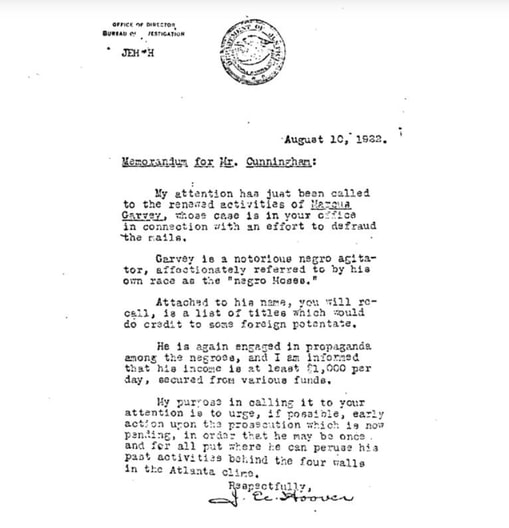 By the mid-1920s, Hoover was able to renounce the FBI’s past political operations. Aside from participating in repression of major strikes, the Bureau would be true to its word for the next decade. But as the Communist Party began to regain relevance- reaching 66,000 members by 1939- Hoover gained approval from President Roosevelt to resume repression of “subversive activities”. Although Roosevelt later altered this directive as the Soviet Union became a key ally in the fight against Nazi Germany, it would not prevent Hoover from using it as justification for later counter-intelligence activities.[6] After World War II ended and the Cold War began, Communism became enemy #1 with the CP becoming a natural target. In coordination with the CIA, the FBI began a program of intercepting and inspecting the international communications of US citizens. This was particularly focused on the mail and cables between the US and Soviet Union.[7] Additionally, the Bureau would frequently use other forms of information gathering such as “surreptitious entry” and “bugging” CP offices.[8] The FBI also cooperated with the IRS to gather information on targeted groups and single them out for harassment from the IRS.[9] Additionally, the FBI would perfect the divide and conquer techniques it would later use to great effect in official COINTELPRO programs against the CP. The Bureau used infiltrators to exploit internal divisions within the party, such as over Khrushchev’s denunciations of Stalin.[10] The Bureau also used “anonymous mailings” in various ways to disrupt party activities. Agents would send letters to party members warning about the treacherous activities of others in the party, hoping to stir up factional disputes.[11] This was also a common ploy in the FBI’s “snitch jacketing” technique to portray loyal party members as informants. This was also frequently accomplished by informants within the party spreading rumors, forged informant reports, or “interviews” where agents would publicly speak with a target to create the impression the party member was an informant.[12] Anonymous letters and interviews would also be used to impact the personal lives of party members or disrupt alliances the party would make with other groups. Agents would contact the employers or landlords of party members in efforts to get them fired or evicted. Additionally, if the CP were seeking to cooperate with other organizations, agents would send derogatory information to these organizations to prevent an alliance.[13] These were the FBI’s covert methods in the battle against domestic communism, but it also played a direct role in the overt repression. The FBI played an active role in the rise of McCarthyism by cultivating “friendly media” outlets which would be used to disseminate derogatory information about the CP. Further, the Bureau aided anti-Communist private organizations such as the American Legion and anti-Communist congressmen, with FBI agents even writing their speeches.[14] These activities would create a general context for the US government’s legal attacks against the CP leadership. FBI agents would use selective law enforcement to harass the party and its members. Party members were frequently arrested for minor or spurious causes. For example, a secretary of the Alabama branch of the CP was arrested and convicted of possessing “seditious literature” for carrying copies of The Nation and The New Republic. He was sentenced to 100 days hard labor and fined $100.[15] This culminated in the government’s use of the Smith Act to prosecute Communist Party members. The Smith Act was passed in 1940 and created criminal penalties for advocating the forcible overthrow of the US government and required all adult non-citizen residents to register with the federal government. It would be used to prosecute eleven top Communist Party members in 1949. All eleven were convicted with ten being sentenced to five to ten years and one- a World War II veteran- sentenced to three.[16] Similar cases would occur across the country, with frequent FBI interference in the judicial process.[17] The official COINTELPRO program would not begin until 1956, although this was just a formalization of already existing FBI practices. Even though the Communist Party had already been decimated by the mid-1950s, the majority of COINTELPRO operations were carried out against the party. However, the most impactful COINTELPRO activities in this period were against other left-wing and civil rights movements. Some of the groups targeted were called “Black Extremist” groups. The Nation of Islam was an early target of this program, with the FBI maintaining massive files on just Elijah Muhammad and Malcolm X. The FBI would go on to play a role in driving a wedge between the two. 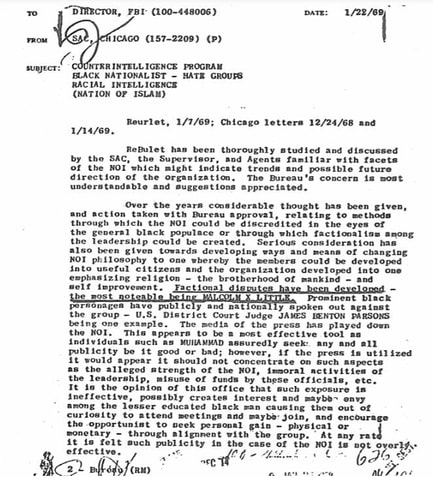 As would become a habit for the FBI, the parameters for which groups qualified as “Black Extremists” was expansive. Organizations that would eventually come under the COINTELPRO purview included the NAACP, SCLC, and SNCC.[19] The FBI infamously wiretapped Martin Luther King Jr. and sent him anonymous letters encouraging him to commit suicide.[20] COINTELPRO would reach its zenith in the late 60ss and early 70s with the inauguration of COINTELPRO-Black Panther and COINTELPRO-New Left. As with its counterintelligence activities against the CP, the Bureau’s tactics ranged from the petty to the outright murderous. Bureau infiltrators of New Left student organizations were instructed to uncover evidence of members’ “depravity” to be publicized.[21] Agents would even contact targets’ parents to inform them of their child’s subversive activities. The FBI also sought to prevent these groups from exercising their first amendment rights by preventing speaking events and public demonstrations. Further, given that many of these groups were popular on college campuses, the Bureau targeted academics friendly to radical groups, seeking to get them disciplined or fired.[22] The Bureau also attempted to instigate violence between target groups and violence-prone rival political organizations or criminal organizations. In 1968, FBI Director J. Edgar Hoover sent a memorandum to FBI field offices instructing them to devise plans to exploit the conflict between the Black Panther Party and Ron Karenga’s Black Nationalist “US” organization.[23] This was accomplished through infiltrators, anonymous mailings, and forged propaganda. For instance, the Los Angeles field office responded to Hoover’s call for proposals reporting:[24] “The Los Angeles Office is currently preparing an anonymous letter for Bureau approval which will be sent to the Los Angeles Black Panther Party supposedly from a member of the ‘US’ organization in which it will be stated the youth group of the ‘US’ organization is aware of the [Black Panther Party] ‘contract’ to kill RON KARENGA, leader of ‘US’, and they, ‘Us’ members, in retaliation have made plans to ambush leaders of the [Party] in Los Angeles. It is hoped this counterintelligence measure will result in an ‘US’ and [Black Panther Party] vendetta.” Agents also distributed forged propaganda meant to increase tensions between the BPP and US, such as this cartoon attributed to US:[25] This strategy would bear fruits as hostilities between the two groups spilled over into violent confrontations resulting in the deaths of four BPP members, including prominent members John Huggins and Bunchy Carter. Despite Bureau protestations that it never intended to encourage violence, the FBI continued to encourage hostility between the two groups even after these killings. This is illustrated by a 1970 report from the FBI’s Los Angeles office:[26] “Information received from local sources indicate that, in general, the membership of the Los Angeles BPP is physically afraid of US members and take premeditated precautions to avoid confrontations. The Bureau used a similar technique with Operation Hoodwink, where the Bureau attempted to spark conflict between the Communist Party and the criminal organization La Cosa Nostra, as well as criminal elements within reaction unions such as the Teamsters. Fortunately, this attempt did not lead to any reported physical conflicts.[27] [28] Additionally, the FBI liked to use a specific form of infiltrator known as “Agents Provocateurs” who would encourage members to commit violent or criminal acts. For example, a member of the Weather Underground arrested for a conspiracy to bomb Detroit police facilities was actually an FBI informant, Larry Grathwohl. Grathwohl reportedly instructed members on how to build bombs and participated in the group’s bombing of a Cincinnati public school.[29] One of the most famous provocateurs was “Tommy the Travler” Tongyai who traveled around college campuses in the northeast encouraging students to bomb military research facilities.[30] As they did with the CP, the Bureau cooperated with local law enforcement to harass targeted groups and their members. Officials sought to stop targets frequently, hoping to arrest and convict them on minor charges. They would also attempt to frame targets for crimes they did not commit. This is exemplified by the case of Geronimo Pratt- a prominent member of the Los Angeles branch of the BPP. After numerous attempts to convict Pratt on trumped up charges failed, Pratt was accused of the 1968 “Tennis Court Murder”. On December 18, 1968, a white couple, Caroline and Kenneth Olsen, were robbed and shot by two black men on a tennis court in Santa Monica, California. Caroline Olsen would die a week later. In August 1969, an anonymous letter was delivered to the Los Angeles Police Department claiming Pratt had committed the murder and had been bragging about it. Pratt was also positively identified by Kenneth Olsen, leading to Pratt’s arrest and eventual conviction in 1972. Of course, the FBI was heavily involved in the trial. The anonymous letter turns out to have been written by Julius Butler, an FBI infiltrator, who would become a key prosecution witness. Additionally, the Bureau had at least one infiltrator in Pratt’s defense team keeping the Bureau informed on defense strategy. And the prosecution concealed the fact that Kenneth Olsen had initially identified another man, Ronald Perkins, as his wife’s killer and that police had purposefully influenced his identification. Pratt would remain in jail for a crime he did not commit until 1997 when his case was invalidated due to the prosecution’s suppression of evidence.[31] But the worst of COINTELPRO was the Bureau’s use of violent raids and political assassinations. On April 6, 1968 a group of Panthers were confronted by police officers in west Oakland. Gunfire was exchanged and the police cordoned off the block. After an hour and a half, the Panthers attempted to surrender, but when unarmed ‘Lil Bobby Hutton emerged from a nearby basement, he was shot dead by police officers.[32] In a more overt case, Chicago police officers, with the assistance of the FBI, assassinated Fred Hampton in 1969. They were assisted by an FBI infiltrator, William O’Neal, who provided detailed floor plans of Hampton’s apartment.[33] This is far from an exhaustive exploration of the FBI’s counterintelligence programs. The FBI targeted numerous groups such as the Socialist Workers’ Party, American Indian Movement, etc. that I was unable to cover here. While COINTELPRO was brought to light by the Church Committee in the 1970s and, subsequently, formally ended, the FBI has definitely continued its counterintelligence activities. In recent years, it has been revealed that the FBI maintains a list of “Black Identity Extremists”.[34] With this in mind, I think it is incredibly important for leftists to learn the history of COINTELPRO. With this knowledge we can more thoroughly safeguard our organizations against the inevitability of government subversion Citations [1]Churchill, W., & Vander Wall, J. (2001). COINTELPRO Papers. Retrieved 2020, from https://www.freedomarchives.org/Documents/Finder/Black%20Liberation%20Disk/Black%20Power!/SugahData/Government/COINTELPRO.S.pdf, 297 [2] Admin. (2020, July 24). AG Palmer Promises "War on Reds," Delivers Palmer Raids. Retrieved October 03, 2020, from https://todayinclh.com/?event=ag-palmer-promises-war-on-reds-delivers-palmer-raids [3]Churchill, W., & Vander Wall, J. (2001). COINTELPRO Papers, Retrieved 2020, from https://www.freedomarchives.org/Documents/Finder/Black%20Liberation%20Disk/Black%20Power!/SugahData/Government/COINTELPRO.S.pdf, 299 [4]“Communist Party Membership by Districts 1922-1950.” Accessed October 3, 2020. https://depts.washington.edu/moves/CP_map-members.shtml. [5] Marcus Garvey.” FBI File on Marcus Garvey, Part4, document no. 190-1781-6, 10 Aug. 1922. The FBI: Federal Bureau of Investigation, US Department of Justice, https://vault.fbi.gov/marcus-garvey/marcus-garvey-part-04-of-12/view [6] Final Report of the Select Committee to Study Governmental Operations with Respect to Intelligence Activities, United States Senate: Together with Additional, Supplemental, and Separate Views. Vol. II. Washington: U.S. Govt. https://www.transformation.dk/www.raven1.net/cointeldocs/churchfinalreportIIb.htm Accessed: 2020 [7] Ibid [8] Ibid [9] Ibid [10] Final Report of the Select Committee to Study Governmental Operations with Respect to Intelligence Activities, United States Senate: Together with Additional, Supplemental, and Separate Views. Vol. III. Washington: U.S. Govt. http://www.aarclibrary.org/publib/church/reports/book3/pdf/ChurchB3_1_COINTELPRO.pdf Accessed:2020, 45 [11] Ibid, Pgs. 33-49. [12] Ibid [13] Ibid [14] O'Reilly, Kenneth. "The FBI and the Origins of McCarthyism." The Historian 45, no. 3 (1983): 372-93. Accessed October 4, 2020. http://www.jstor.org/stable/24445173. [15] Churchill, W., & Vander Wall, J. (2001). COINTELPRO Papers. P. 318, Retrieved 2020, from https://www.freedomarchives.org/Documents/Finder/Black%20Liberation%20Disk/Black%20Power!/SugahData/Government/COINTELPRO.S.pdf [16] McElroy, Wendy. “Smith Act Tyranny Against Communists.” The Future of Freedom Foundation, March 5, 2018. https://www.fff.org/explore-freedom/article/smith-act-tyranny-communists/. [17] Final Report of the Select Committee to Study Governmental Operations with Respect to Intelligence Activities, United States Senate: Together with Additional, Supplemental, and Separate Views. Vol. III. Washington: U.S. Govt. http://www.aarclibrary.org/publib/church/reports/book3/pdf/ChurchB3_1_COINTELPRO.pdf Accessed:2020, 57 [18] Chicago. Bureau of Investigation. Chicago Letters. Chicago: Bureau of Investigation, 1969. http://docs.noi.org/fbi_january_22_1969.pdf [19] Final Report of the Select Committee to Study Governmental Operations with Respect to Intelligence Activities, United States Senate: Together with Additional, Supplemental, and Separate Views. Vol. III. Washington: U.S. Govt. http://www.aarclibrary.org/publib/church/reports/book3/pdf/ChurchB3_1_COINTELPRO.pdf Accessed:2020, 5 [20] Gage, Beverly. “What an Uncensored Letter to M.L.K. Reveals.” The New York Times. The New York Times, November 11, 2014. https://www.nytimes.com/2014/11/16/magazine/what-an-uncensored-letter-to-mlk-reveals.html. [21] Final Report of the Select Committee to Study Governmental Operations with Respect to Intelligence Activities, United States Senate: Together with Additional, Supplemental, and Separate Views. Vol. III. Washington: U.S. Govt. http://www.aarclibrary.org/publib/church/reports/book3/pdf/ChurchB3_1_COINTELPRO.pdf Accessed:2020, 24 [22] Ibid, Pg. 56 [23] “Federal Bureau of Investigation – Initial Memo on Fomenting Violence Against Black Panther Party.” Genius. Accessed October 4, 2020. https://genius.com/Federal-bureau-of-investigation-initial-memo-on-fomenting-violence-against-black-panther-party-annotated. [24] Bloom, Joshua, and Waldo E. Martin. Black against Empire: The History and Politics of the Black Panther Party. Berkeley: University of California Press, 2016, 218 [25] Los Angeles. Bureau of Investigation. Things to do Today. Los Angeles: Bureau of Investigations, 1969. http://collection-politicalgraphics.org/detail.php?type=browse&id=1&term=Black+Panther+Party&page=3&kv=54716&record=141&module=objects [26] Final Report of the Select Committee to Study Governmental Operations with Respect to Intelligence Activities, United States Senate: Together with Additional, Supplemental, and Separate Views. Vol. III, Washington: U.S. Govt. https://www.aarclibrary.org/publib/church/reports/book3/pdf/ChurchB3_3_BlackPanthers.pdf Accessed: 2020, 24 [27] “Hoodwink.” FBI Files for Operation Hoodwink, part 1, document no. 100-159407, 29 Nov. 1967. The FBI: Federal Bureau of Investigation, US Department of Justice, https://vault.fbi.gov/cointel-pro/hoodwink/cointel-pro-hoodwink-part-01-of-01/view [28] “Hoodwink.” FBI Files for Operation Hoodwink, par1, document no. 100-49252, 25 Jan. 1968. The FBI: Federal Bureau of Investigation, US Department of Justice, https://vault.fbi.gov/cointel-pro/hoodwink/cointel-pro-hoodwink-part-01-of-01/view [29] Newton, Michael. The FBI Encyclopedia. Jefferson, NC: McFarland & Co., 2012, 133 [30] Churchill, Ward, and Jim VanderWall. Agents of Repression: the FBI's Secret Wars against the Black Panther Party and the American Indian Movement. Cambridge, MA: South End Pr., 2008, 48. [31] Ibid, 77-94 [32] Bloom, Joshua, and Waldo E. Martin. Black against Empire: The History and Politics of the Black Panther Party. Berkeley: University of California Press, 2016, 118-120. [33] Churchill, Ward, and Jim VanderWall. Agents of Repression: the FBI's Secret Wars against the Black Panther Party and the American Indian Movement. Cambridge, MA: South End Pr., 2008, 64-77. [34] Speri, Alice. “The Strange Tale of the FBI's Fictional ‘Black Identity Extremism’ Movement.” The Intercept, March 23, 2019. https://theintercept.com/2019/03/23/black-identity-extremist-fbi-domestic-terrorism/. Naomi Klein’s 2007 book The Shock Doctrine: The Rise of Disaster Capitalism details a long history of the United States using times of disaster as an opportunity to push for neoliberal policies. Klein begins her book using Hurricane Katrina as an example. In the aftermath of Katrina, famed free market economist Milton Friedman wrote an op-ed for the Wall Street Journal. Freidman said “Most New Orleans schools are in Ruin… This is a tragedy. It is also an opportunity to radically reform the Education system.”[1] By radically reforming the education system, Freidman of course meant transitioning from Government funded public schools, to privately managed charter schools. Freidman saw that New Orlean’s education system had been completely decimated by the hurricane, and would need to be rebuilt. Friedman urged New Orleans to seize the opportunity and rebuild their school system from scratch with a focus on privately operated schools. The Bush administration heeded Friedman’s advice, and began dumping millions of dollars into the creation of new charter schools in New Orleans. In a matter of 19 months, the school board went from managing 123 Public Schools to 4, the number of Charter schools increased from 7 to 31, and the teacher’s union contract was shredded, leading to forty-seven hundred teachers being fired.[2] The free market advocates had successfully used the chaos created in the wake of a natural disaster to implement neoliberal policies, while framing these policies as the solution to the problems many New Orleans residents were facing. This playbook is what Naomi Klein calls “The Shock Doctrine.” Using chaos in the wake of natural or political disaster as an opportunity to push for neoliberal free market policy. The Covid-19 Pandemic provides another clear example of the shock doctrine, and what Naomi Klein calls in her book “disaster capitalism.” An area of heavy focus in Klein’s book, is the 1973 coup in Chile. The CIA famously allied with Agusto Pinochet’s military government, who overthrew and killed socialist leader Salvador Allende.[3] Pinochet’s government was notoriously brutal. Upon taking power Pinochet ordered the massacre of approximately 20,000 people suspected of being communists. The political murders took place in the Estadio Nacional Julio Martinez Pradones, which is Chile’s official national fútbol stadium. Pinochet’s rapid seize of power, and following acts of political violence, left the Chilean people in a place of fear and chaos. It was at this time, the aforementioned Milton Freidman became chief economic advisor to Agusto Pinochet. In addition, many Freidman trained economists from the Chicago School became advisors to Pinochet. Chile would then be subjected to a series of free market neoliberal economic reforms. All government spending besides military was cut 10%, price controls were lifted, and unlimited foreign imports were now allowed. Additionally, leftists and union activists were hunted and killed by the Pinochet military dictatorship.[4] These policies had a disastrous effect on average Chilean workers. Unemployment hit as high as 30%, while simultaneously corporate profits soared.[5] Katrina shows how the shock doctrine is applied domestically, while Chile provides an example of how the Shock Doctrine playbook is used as a tool of imperialism. Currently the US is using the Covid-19 pandemic as a chance to destabilize Venezuela, as they did Chile years ago. Prior to Pinochet taking power, the US had placed Chile under economic embargo, blocking them from trading with most the world. This same strategy has been used on Venezuela for years, however it has been ramped up to new heights as of late. Venezuela now has 150 economic sanctions placed on their country by the United States.[6] The US has blatantly ramped up sanctions on Venezuela, during a time when the Latin American country is attempting to fight against the Covid-19 pandemic. As the UN and EU call for the US to alleviate sanctions during the pandemic, the Trump administration has instead created new sanctions. Including sanctions imposed on March 12, cracking down on a Russian firm, which was helping to sell Venezuelan oil. Venezuelan expert Jeffery Sachs says “sanctions have weakened both countries’ (Iran and Venezuela) health infrastructure by curtailing access to foreign exchange and the capacity to import key medical inputs”[7] The increase in sanctions follow the shock doctrine playbook closely. The US is attempting to use the Global Pandemic as a tool to achieve the regime change they desperately want. After blocking Venezuela from importing medical supplies, the US can turn and President Maduro, and the Venezuelan Government for people’s suffering. The US backed Venezuelan opposition party, will no doubt parrot this anti Government narrative to struggling Venezuelans. Were the US to be successful in overthrowing the Venezuelan Government, Venezuela would no doubt follow the same path as Chile. Juan Guaidó, or another neoliberal puppet from the Venezuelan opposition party, would take power and immediately implement neoliberal reforms. US sanctions would be lifted, and GDP along with corporate profits would skyrocket, while social programs and unions would be destroyed. Free Market advocates would claim victory, and point to Venezuela’s increased GDP as a success story of capitalism, claiming that the country had been saved from the evils of socialism. These Free Market advocates would never mention the US of sanctions used to starve Venezuela out during a pandemic. This is a playbook the free market advocates have been using for years. The US destabilizes a region using sanctions or other measures, then when a US friendly leader is appointed, the sanctions are relieved, and GDP skyrockets. The Free Market economists then claim victory, as the country in question becomes a source of cheap resources and labour for multi-national corporations. Venezuela sits on 300 billion barrels of oil, the largest oil reserves in the world.[8] Now blocked off from trading with the rest of the world, the oil based economy now has an abundance of commodities to sell, but nobody to sell them too. The government is trying desperately to sell the countries’ oil to anyone who will buy it, in order to properly fund the Venezuelan healthcare infrastructure. Now a pandemic is tearing through the country, and the response from the US has been to increase sanctions and destabilize Venezuela further. This is what Naomi Klein calls Disaster Capitalism. In a world that makes sense, the global community would come together during a pandemic. The resources and productive power of all human beings should be used to help every nation fight this deadly pandemic. Instead the imperialists who rule the world see the pandemic as an opportunity. An opportunity to destabilize enemy nations, and implement neoliberal policy reforms. This reveals the true nature of capitalism. A system which incentivizes only greed, and the acquisition of more commodities. It is a system which creates a psychology among the ruling class, where even in a pandemic which effects the whole of humanity, the system remains focused on profit. Capitalists no longer view Venezuela as a country with millions of regular people living their day to day lives. Venezuela is nothing but a metaphorical gold mine to them. A giant pool of oil that can be extracted and sold at a profit. For the ruling class this Pandemic is not a horrible tragedy, but an excellent business opportunity. If the pandemic can be used as a tool to destabilize Venezuela and allow corporations to access those 300 billion barrels of oil, that is exactly what will happen. Greed takes precedent to human life, and natural disasters are no longer tragedies, but tools for destabilization. This is disaster capitalism, and it is the modern state of human civilization. Citations [1] Friedman, Milton. “The Promise of Vouchers.” The Wall Street Journal. Dow Jones & Company, December 5, 2005. https://www.wsj.com/articles/SB113374845791113764. [2] Klein, Naomi. “Introduction.” Essay. In The Shock Doctrine: the Rise of Disaster Capitalism, 5–5. London: Penguin, 2014. [3] “CIA Cover-Up on Chile.” National Security Archive, August 11, 2017. https://nsarchive.gwu.edu/briefing-book/chile/2016-09-09/cia-cover-chile. [4] The Pinochet Myth. Youtube.com, 2018. https://www.youtube.com/watch?v=gIwJCtboXQA&t=87s. [5] Klein, Naomi. “Introduction.” Essay. In The Shock Doctrine: the Rise of Disaster Capitalism, 5–5. London: Penguin, 2014. [6] Service, Congressional Research. “Venezuela: Overview of US Sancitons.” FAS.org, 2020. https://fas.org/sgp/crs/row/IF10715.pdf. [7] D. Sachs and Francisco Rodriguez – Project Syndicate, Jeffery. “A Pandemic Is No Time for US Economic Sanctions.” Venezuelanalysis.com, July 8, 2020. https://venezuelanalysis.com/analysis/14822. [8] “Top Ten Countries with World's Largest Oil Reserves, from Venezuela to Iraq.” NS Energy, April 5, 2019. https://www.nsenergybusiness.com/features/newstop-ten-countries-with-worlds-largest-oil-reserves-5793487/. |
Details
Archives
July 2024
Categories
All
|
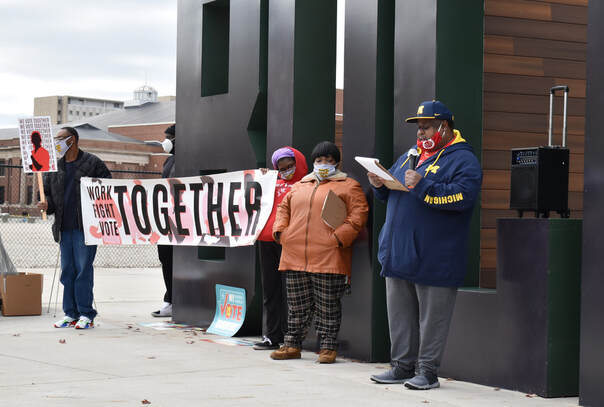
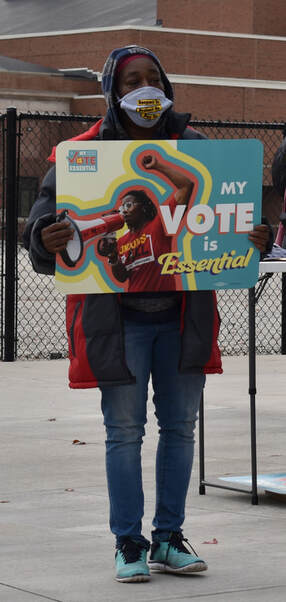
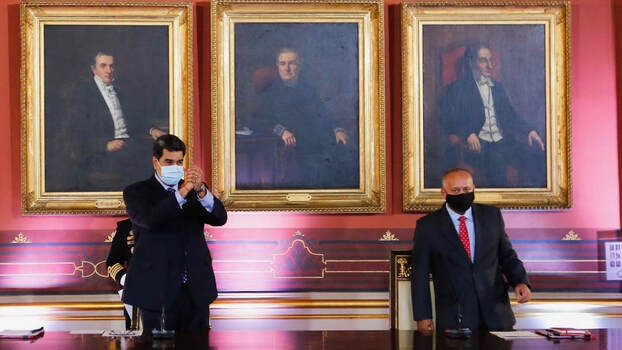
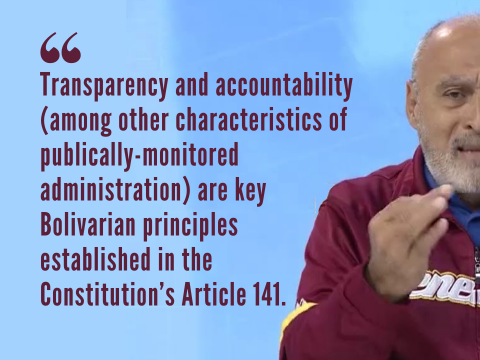
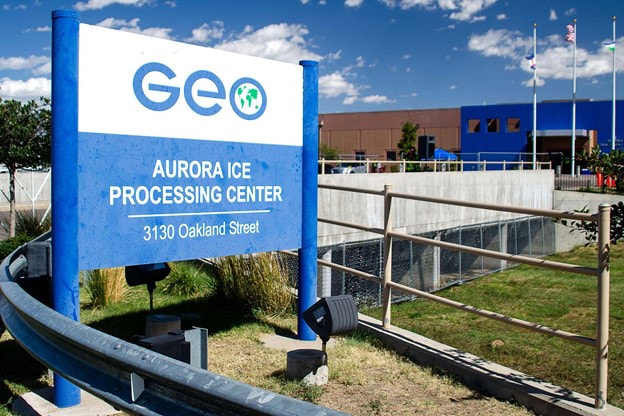
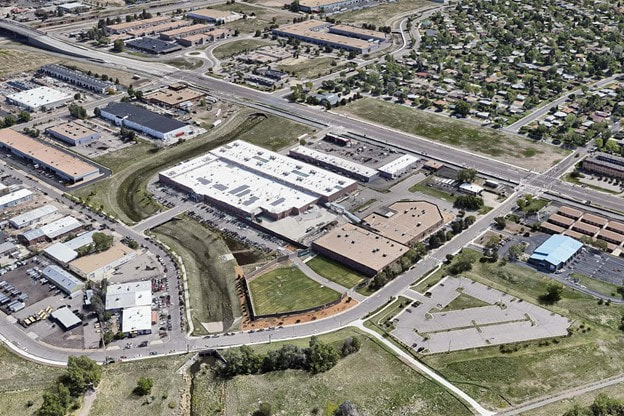
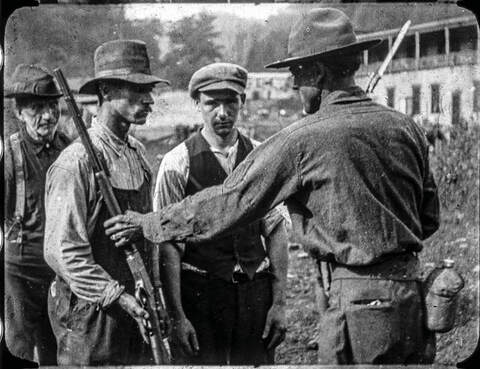
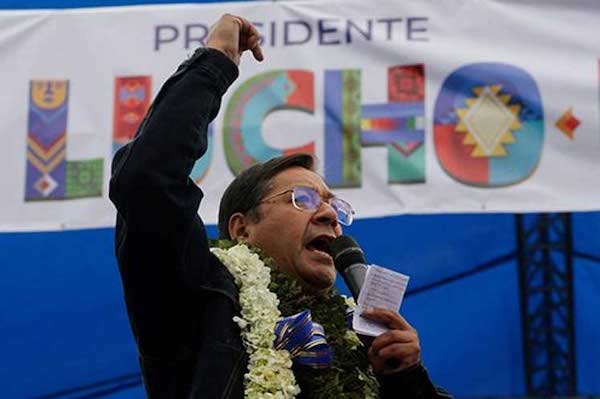
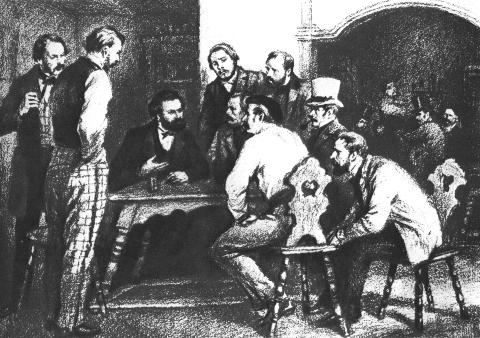

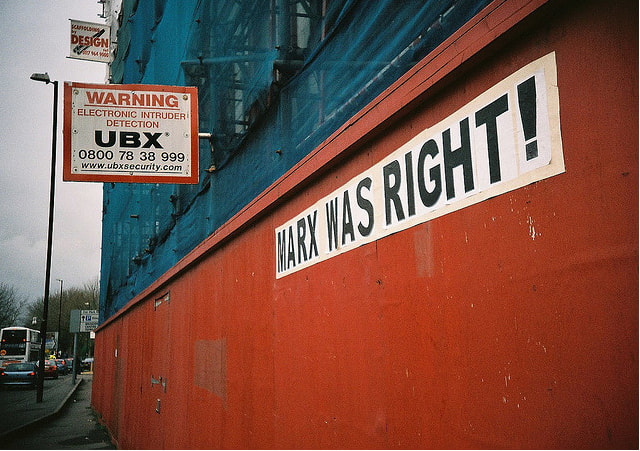
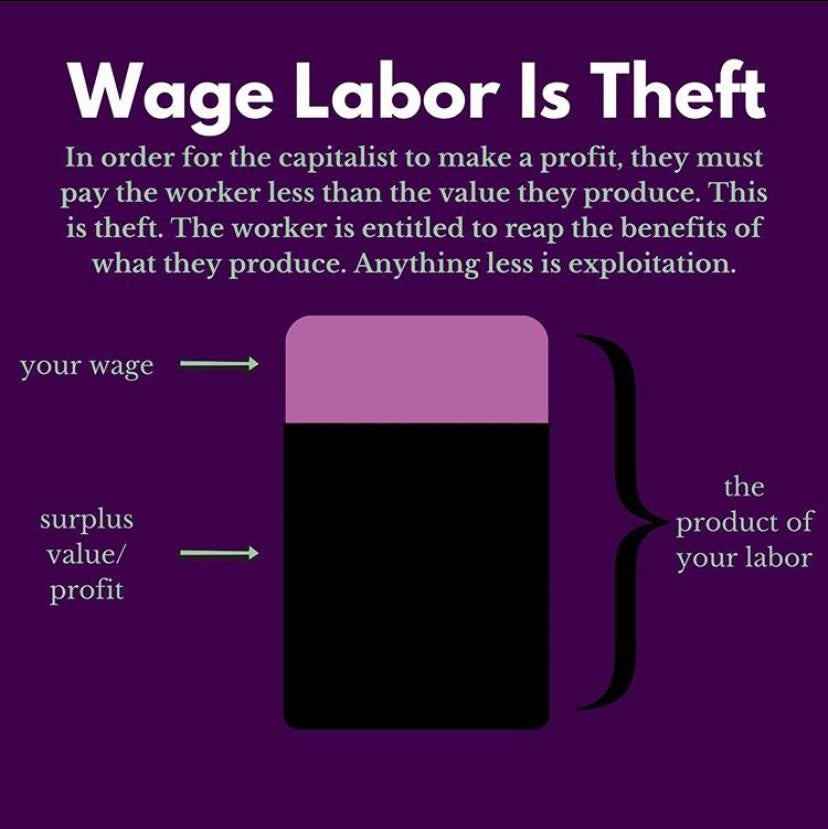
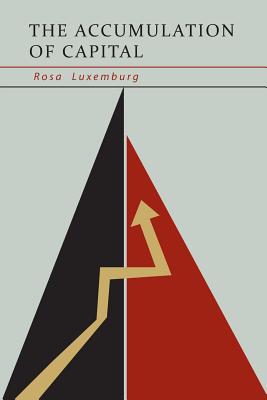
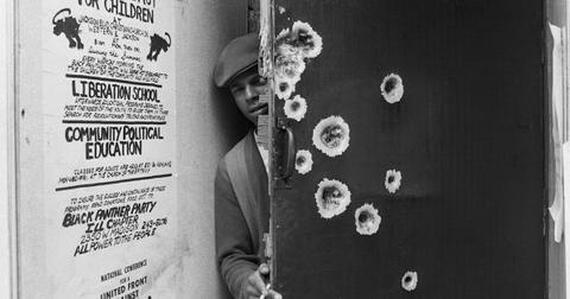
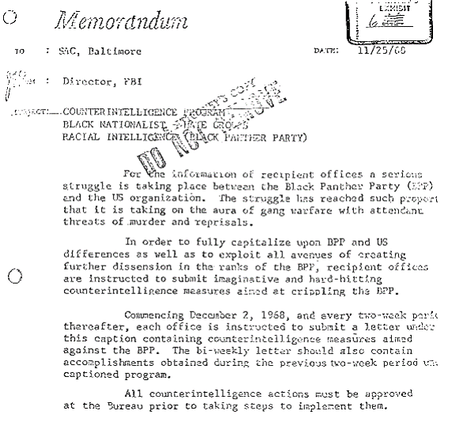
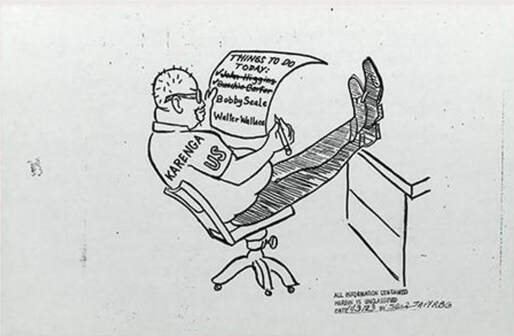
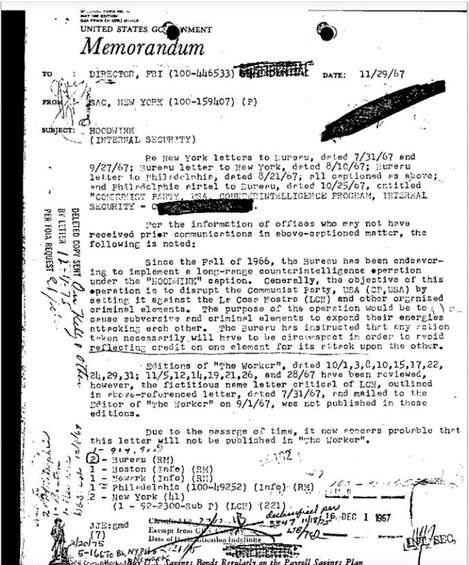
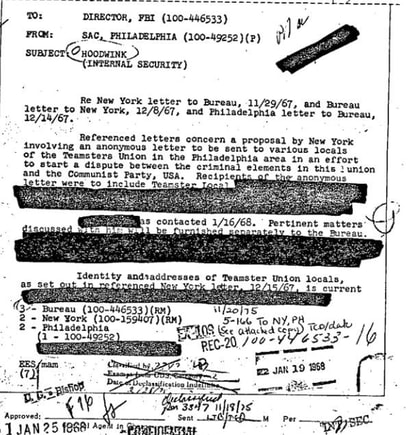
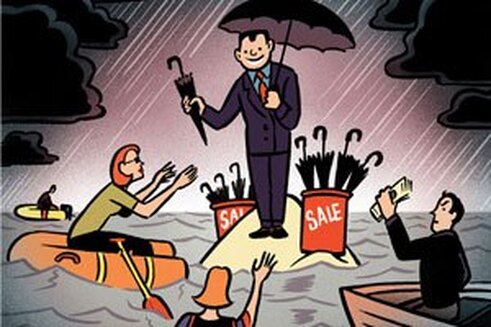
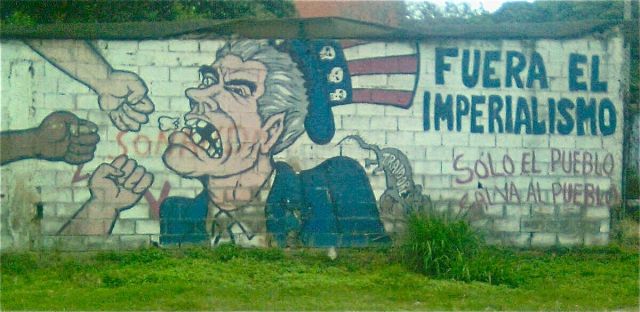
 RSS Feed
RSS Feed